
Catholics for Renewal
Subtitle
News 2021
Views expressed are those of the Authors and may or may not always represent those of Catholics For Renewal.

"A Church for All: A Guide to the Australian Plenary Council...and Beyond"
Sr Joan Chittister & ACCCR - Details HERE

The Synod and a synodal culture have immense potential to heal and renew the wounded post-pandemic Church
Limited extract from Nuala Kenny OC, MD, Canada, Subscription journal, La Croix International, 23 December 2021
We enter the holy season of Christmas in the darkness and fear of the raging Omicron variant of the coronavirus. This is not relieved by the false news of Christmas as a sentimental, happy family festival or the false joy of Santa Claus, expensive gifts and lavish light displays. Christmas is a time of dread for many because it doesn't meet the hyped expectations. The inequities between the wealthy and those living in poverty and marginalization are magnified and cause guilt and anger because parents cannot fulfill their children's dreams. Our time is far from happy, merry or joyful. We need the good news of the Incarnation more than ever. The Church entered the COVID-19 pandemic weak and wounded from public revelations of longstanding abuse of power and harm through clergy sexual abuse of children and young people. It was also marred by racism, colonialism and participation in economic and political structures of power, privilege and oppression of the poor and marginalized. This has been compounded by tragedy fatigue and burn-out. In this darkness we are like the Wise Men following a star and seeking the light of truth and meaning. "Called to make people's hopes flourish". Such a light was provided to us on October 10 when Pope Francis opened preparations for the next assembly of the Synod of Bishops, which will take place in 2023. The purpose of this preparatory phase is not to produce formal documents by bishops and "experts". "Rather, it is intended to inspire people to dream about the Church we are called to be, to make people's hopes flourish, to stimulate trust, to bind up wounds, to weave new and deeper relationships, to learn from one another, to build bridges, to enlighten minds, warm hearts, and restore strength to our hands for our common mission," as the Synod's vademecum (or handbook) says. The Synod and a synodal culture have immense potential to heal and renew the wounded post-pandemic Church if we can trust in the Holy Spirit and actively participate. This new process has been met with anticipation, but also with disinterest. Focusing on communion, participation and mission, Pope Francis desires this Synod to be an experience of encounter, listening and discernment. He reminds us that in Jesus' own encounters he walks with people and listens to the questions and concerns deep in their hearts. And Jesus shows us that God is not found in neat and orderly places, distant from reality, but walks ever at our side on the rocky roads and in the dark places of life....(more). Image: Incarnation, Encounter, Synod.a Croix Int, 20211223
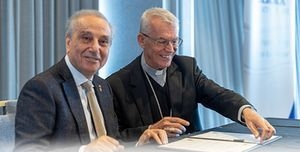
Extract from CathNes, The eRecord, 22 December 2021
Pastoral support for parish priests in the Perth Archdiocese is now available thanks to the launch of a new clergy professional pastoral supervision program. An essential ingredient in maintaining wellbeing, the new program ensures that the clergy have access to support and strategies to effectively mitigate the many stresses of being spiritually responsible for their local Catholic community. “At the heart of our ministry as deacons, priests and bishops is our commitment to be servants to our brothers and sisters in the faith, and in an increasingly complex world it is not always easy to live this vocation fully,” Perth Archbishop Timothy Costelloe SDB said. Pastoral supervision is designed to help us acknowledge and build on what is working and assist us to make changes where necessary and this has certainly been my own experience over the last few years.” Although the new program is a direct response to recommendations made by the child abuse royal commission, it also extends a valuable service to the clergy: supervision is common practice for professionals who are entrusted with the physical, mental and emotional care of people, especially for the vulnerable.....(more) Photo: Centrecare Inc Director Tony Pietropiccolo, Archbishop Timothy Costello, Clergy Professional Pastoral Supervision Program, eRecord Max Hoh, CathNews 20211222
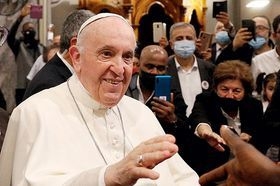
Francis’ year: keeping pace with the Pope
Limited extract from Christopher Lamb, Subscription journal, The Tablet, 17 December 2021
From the start of his papacy, the ‘outsider Pope’ has made clear the direction in which he would like to take the Church. This year has seen Francis, who is 85 on 17 December, put his foot on the accelerator. At the beginning of 2021, I wrote that as Pope Francis was seeking to press ahead with his reforms, he was showing no sign of slowing down. This year, Francis has not simply kept up the pace of change – he has moved into top gear. The Pope seems determined not to waste what he sees as a critical, epoch-shifting, kairos moment to reshape the Church for the twenty-first century. The last 12 months have been a whirlwind of activity, with Francis opening the most ambitious Catholic renewal process in six decades; making a historic visit to Iraq; giving the green light for an unprecedented corruption trial in the Vatican; and continuing to offer bold leadership on the migrants’ crisis, climate change and social justice. There are no signs that the Pope intends to stand down......(Source). Photo: Pope Francis Cyprus CNS, Paul Haring, The Tablet 20211216
Extract from CathNews, Crux, 17 December 2021
A group of Catholic and Anglican theologians has publicly called on the Vatican to review and overturn a papal document from 1896 that declared Anglican ordinations “absolutely null and utterly void”. “Where we once walked apart, we now walk together in friendship and love,” wrote members of the Malines Conversations Group after tracing the history of ecumenical agreements between the Catholic Church and the Anglican Communion and, especially, reviewing examples of collaboration and gestures of recognition. The judgment made by Pope Leo XIII in his apostolic letter Apostolicae Curae in 1896 “does not accord with the reality into which the Spirit has led us now,” said members of the group, which is an informal Catholic-Anglican dialogue that began in 2013. Members of the group, who are not appointed to represent their churches but keep their respective ecumenical offices informed of their studies and discussions, presented a 27-page document on Wednesday at Rome’s Pontifical University of St Thomas Aquinas. Bishop Brian Farrell, secretary of the Pontifical Council for Promoting Christian Unity, said that while his Vatican office does not sponsor the group’s dialogue, “we are very happy” that the question of Anglican orders is “being examined in the wholly different ecumenical context of today, when so much has been achieved in Anglican-Catholic relations”.....(more)

Synod cannot avoid hot-button issues, say 'Women in Synodality' panelists
Extract from Christopher White, Global Sisters Report, Managing Editor, National Catholic Reporter, 16 December 2021
Rome — If the Vatican's global synod process is to succeed, discussion of hot-button topics such as women's ordination and women deacons cannot be silenced, according to the head of an umbrella organization representing some 600,000 religious sisters from around the world. "We have to also allow the topics that people want to talk about to be named," said Loreto Sr. Patricia Murray on Dec. 16, specifically citing questions surrounding women in the priesthood and the diaconate. Murray, who is executive secretary of the International Union of Superiors General, recalled that Pope Francis has previously authorized two commissions to study the issue of women deacons and said the two-year process for the Synod of Bishops on synodality, which was launched in October, must facilitate discussion on issues where some church leaders would rather avoid debate. Her remarks came during a discussion on "Women in Synodality," co-hosted by Australian Ambassador to the Holy See Chiara Porro, the Jesuit-run journal La Civiltà Cattolica and Georgetown University. While the traditional organizational structure of the Catholic Church is that of an all-male Catholic hierarchy, the two-hour conversation on Thursday aimed to amplify the voices of Catholic women from across the globe, with panelists from Africa, Australia and Europe. In response to Murray's comments, Xavière Missionary Sr. Nathalie Becquart, who is undersecretary for the Vatican's office of the Synod of Bishops, said that the church "cannot be synodal" if it dictates in advance "how each topic will be addressed." Instead, she said the process requires "deep listening" and "mutual listening." Following the official launch of the synod in October, dioceses around the world are currently undergoing a "listening" stage, meant as a consultation with the entire church and even those outside of it. While quoting Francis' mantra that the synod is not a "parliamentary process," Becquart said that the listening stage requires hearing the voices of everyone and the issues that are raised should be reflected in the summary document produced in the process. Dutch theologian Myriam Wijlens, who is a professor of canon law at the University of Erfurt in Germany and a consultor to the Synod of Bishops, said that one of the fruits of the Second Vatican Council means that the church is not just "a top-down model anymore."...(more). Photo: Women in Synodality Forum Panelists Synod of Bishops, process and womens views on Hot Button topics, GSR photo Christopher Whiten NCR 16 Dec 2021
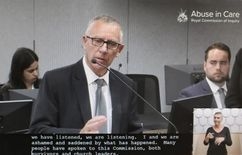
New Zealand abuse report says Church hasn’t taken ‘sufficient steps’ to address problem
Extract from Charles Collins, Managing Editor, Crux, 16 December 2021
A new report on sexual abuse in New Zealand says abuse in religious settings often causes “particular harm” to victims. The report quoted Thomas Doyle, a former Catholic priest and a leading expert in abuse in the Catholic Church, who called it “soul murder.” The report by the Royal Commission of Inquiry into Abuse in Care – titled He Purapura Ora, he Māra Tipu; from Redress to Puretumu — was tabled in New Zealand’s parliament on Dec. 15. The document makes recommendations on how survivors of abuse in state and faith-based care should be listened to and how they should be compensated. The three religious denominations covered in the report were the Catholic Church, the Anglican Church, and the Salvation Army. The Royal Commission was set up by the government but was completely independent from the government and the religious groups involved. The main period of investigation was 1950 to 1999, although it had the discretion to consider incidents from before and after this time period in order to inform its recommendations. The report noted that survivors who experience religious or spiritual abuse “can have a shaken sense or complete loss of faith and spirituality – things that are sometimes central to the survivor’s sense of identity prior to the abuse.” “They may stop participating in religious observances and practices all together. This can contribute to an intense sense of loss of the spiritual dimension of identity, which previously provided a source of strength, support and meaning,” the report said, adding the trauma of the abuse could cause victims to not be able to attend weddings, funerals, baptisms or other family gatherings if those events take place in a religious setting.....(more). Photo: Cardinal John Dew, New Zealand Royal Commission on Abuse in Care. The royal commission directed that no attendees at public hearings should wear religious attire or uniforms, as that could be triggering for abuse survivors. CNS screenshot NZ Catholic, Crux 16 December 2021

When synodality confronts hierarchy
Extract from John Warhurst, Eureka Street, 14 December 2021
What an extraordinary coincidence of synodal events the Church in Australia is currently undertaking. The intersessional period between the two Assemblies of the Fifth Plenary Council is underway and the First Assembly Proposals from Small Groups and Individual Members has just been published. At the same time, we are called to participate in the consultation process with the entire Church for the 16th Ordinary General Assembly of the Synod of Bishops on Synodality. Australian Catholics have been invited to link the two occasions by responding to the First Assembly Proposals through the Synod of Bishops consultation process. Synodality is at the heart of both events. Archbishop Timothy Costelloe’s presidential message accompanying the First Assembly Proposals document included the reflection that: ‘It has been a journey of listening, dialogue and discernment which has provided the opportunity for all of us to explore the practice of ‘synodality’ and learn by doing’. Not only was synodality embraced by the Assembly, but a specific agenda question (No. 13) asked: ‘How might the People of God, lay and ordained, women and men, approach governance in the spirit of synodality and co-responsibility for more effective proclamation of the Gospel?’ The Individual Reflection Guide issued by the Australian Catholic Bishops Conference (ACBC) for the Synod of Bishops consultation states that ‘Pope Francis is calling the Church to practice synodality, that is listening to-and hearing-one another in all facets of Church life.’ We are invited to participate in the consultation process to reflect on the three dimensions of a synodal Church: communion, participation and mission. However, synodality confronts the traditional practice of hierarchy within the church. When the ACBC responded last December to The Light from the Southern Cross report, which promoted synodality and co-responsible governance, it re-stated its position that hierarchy was embedded in the church’s approach to governance. This immediately set up a potential tension between episcopal authority and participation in governance by the People of God. The official reflection guide further explores this tension, while flatly asserting that ‘A synodal church is a participatory and co-responsible church’. The exploration poses some questions which are both philosophical and practical. The headings are Authority and Participation; Discerning and Deciding. The questions are more thoughtful and probing than the PC Agenda Questions.........(more). Photo: John Warhurst

Pope Francis launches the most important global Catholic project since Vatican II
Limited extracts from Massimo Faggioli, 24 May 2021, Signs of the Times, subscription Journal La Croix International, linked here 14 December 2021
In the ninth year of his pontificate, Pope Francis has launched an ambitious three-year worldwide "synodal process". It will culminate in October 2023 in Rome with the XVI ordinary general assembly of the Synod of Bishops. At that point, Francis will be almost 87 years old. By that age, all of his predecessors on the Chair of Peter had either died (with the exception of Leo XIII) or had resigned (such as Benedict XVI and Celestine V). And if, God forbid, the Jesuit pope should not make it to 2023, this "synodal process" will have already begun. It's his insurance policy against the possibility that his pontificate will be promptly archived as a quick break before another pope returns to the status quo. Even if there should be a conclave between now and the 2023 Synod assembly, the synodal process will be an integral part of the next conclave's agenda in a way not totally different from the papal election of June 1963. The deceased pope, John XXIII, had already launched the first session of the Second Vatican Council in the autumn of 1962. His newly elected successor, Paul VI, continued the Council and brought the ship into port in December 1965. It was no coincidence that Francis and his highly regarded Synod secretary general, Cardinal Mario Grech of Malta, announced the synodal process just before Pentecost, the event when the Holy Spirit manifests itself through multiple languages and reveals unity in diversity. An ambitious project with various risks. But this global synodal process is not only ambitious, it is also risky because of its different phases – local, national/continental, and central – that will highlight the radical differences in the ecclesial and existential conditions of local Churches...........This new global synodal process also has to merge with ongoing national synodal paths that are already unfolding (Germany and Australia) or in the planning stages (Ireland and Italy). Currently in the Catholic Church there are vastly different ideas about synodality, even among its advocates. Is the aim to create a more pastoral and less clerical Church or is it to push for doctrinal developments on certain critical issues (such as the role of women in the Church, teaching on sexuality, etc.)?....(more). Photo: The synodal-process-2021-2023-La Croix Int 20210521
The disregard shown to the hopes of lay people at the first general assembly of the Catholic Church’s Fifth Plenary Council should not be repeated.
Extract from By Catholics For Renewal, Pearls & Irritations, John Menadue Website, 12 December 2021
After three years of intense preparations, the Catholic Church’s Fifth Plenary Council of Australia is now well under way. The first general assembly, conducted online across five time zones on October 3-10, has concluded and Catholics are rightly asking: What did it achieve? Is God doing a “new thing” for the Church in Australia? What were the Australian bishops intending the council to achieve? In 2016, Archbishop of Brisbane Mark Coleridge said a council would have to address the fallout from the royal commission into child sexual abuse and the drastic decline in Mass attendance and sacramental participation. More generally, he said, it would have to bring on a “change of culture” and make “bold decisions about the future of the Catholic Church in Australia” In 2016, Bishop Vincent Long of the Parramatta diocese said the council would have to address the underlying causes of the Church’s existential crisis, triggered by what he called a “systematic betrayal of the Gospel” by the bishops in the sexual abuse catastrophe. At the outset, the bishops committed to an inclusive national consultation with the whole Catholic community “in its breadth and diversity”. The community responded through 17,500 individual and group submissions, indicating clearly their priorities for culture change and bold decisions for the future. A lengthy process followed which distilled the content of the submissions into discernment papers, an “instrumentum laboris” and finally an agenda. Catholics for Renewal regarded the agenda as not fit for purpose because it failed to fully embody the priorities of the Australian faithful. Plenary Council member Professor John Warhurst said the 17,500 submissions had not been adequately respected and represented in the council agenda.....(more)
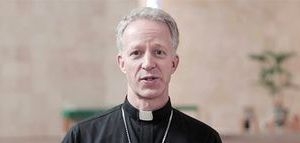
Extract from Brian Fraga, Catholic Outlook, Parramatta Diocese, La Croix International, 8 December 2021
Bishop William Wack CSC of Pensacola-Tallahassee, has just released a pastoral letter aimed at re-energizing Catholics in his Florida diocese. Christendom has come and gone, says Bishop William Wack of Pensacola-Tallahassee, Florida. “We’ve reached the end of Christendom,” said Wack, who told NCR in a recent interview that the church’s goal should not be to restore a supposed golden age of Christianity or rebuild a political culture where the Christian faith reigns supreme. “Our faith is not built on this state-sponsored or state-supported Christianity. It’s built on a person: Jesus Christ, who is the same yesterday, today and tomorrow,” said Wack, explaining in the interview his vision of the Christian faith and modern society that he wrote about in his first pastoral letter. Released Nov. 4, Wack’s 18-page letter, entitled “Sharing the Gift,” focuses on evangelization. Echoing Pope Francis, Wack urges Catholics in his northern Florida diocese to become “missionary disciples” by living their faith and seizing opportunities to share it with their neighbours. In “Sharing the Gift,” Wack, a Holy Cross priest who became the bishop of Pensacola-Tallahassee in August 2017, cites Gaudium et Spes and Lumen Gentium from the Second Vatican Council. Wack also acknowledges the “great deal of anger, division, anxiety and hopelessness” in modern times. In such circumstances, Wack says the temptation is to retreat and “circle the wagons” to defend the Christian faith from outside forces, or to use the Gospel solely to address hot button social issues. Such approaches, Wack says, miss the essence of the Christian faith. Wack discussed his pastoral letter in an interview in early November, before the U.S. bishops’ assembly in Baltimore, where the bishops approved a document on “eucharistic consistency” after months of controversy over efforts by some prelates to address pro-choice Catholic politicians like President Joe Biden......(more) Image: Bishop William Wack CSC, Bishop Pensacola-Tallahassee, Florida, Diocese of Pensacola-Tallahassee, Vimeo
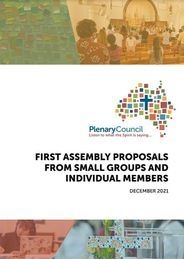
Extract from Archbishop Timothy Costelloe SDB, President of the Plenary Council, 9 December 2021
.......The celebration of the Plenary Council began with the commencement of the First Assembly on Sunday October 3rd 2021 in St Mary’s Cathedral, Perth. Over the following week, nearly 280 members from across Australia gathered online with observers and theological advisors, in plenary sessions and in small groups. This was an inspiring, challenging and sometimes unsettling week for many of us. Above all, it was a Spirit-filled week of discernment and reflection as we explored together possible ways of re-casting ourselves, re-positioning ourselves, the Church in Australia, for our mission of becoming more fully a clear, unambiguous, and effective sign and instrument of communion with God and of unity among all people. I am very pleased to present the fruits of that discernment to Members and to the Catholic community. This draws together the proposals that emerged from the small groups that met each day, along with formal proposals submitted by individual Members. As much as possible, what follows retains the original voice of those who spoke, without attempts to produce a harmonised or homogenous account. Plenary Council Members will have an opportunity to engage with these proposals at ‘coffee conversations’ during December. I encourage the wider Catholic community to consider these proposals as a significant indication of our local context when participating in the local consultation currently underway for the 2023 Synod ‘For a Synodal Church: Communion, Participation and Mission’, which has the fundamental question: How is the ‘journeying together’ to announce the Gospel happening today in your particular Church? What steps does the Spirit invite us to take in order to grow in our ‘journeying together’? (visit www.catholic.org.au/synodalchurch). Further reflection on these proposals is already underway, to identify thematic focuses for propositions that might be developed for consideration by the Second Assembly in July 2022. This work will be coordinated by the Council’s Drafting Committee, drawing on a range of theologians and other contributors. As initial drafts of propositions become available, they will be shared with Members, Advisors and other Church and Agency leaders for ongoing discernment and feedback. In this way, the writing process will be informed and guided by the ongoing prayer, conversation and discernment of the Members and the wider people of God in Australia..... (Full document with Proposals HERE)
Let the Holy Spirit surprise you, Bishop Chow (Hong Kong Bishop Elect) says
Extract from Catholic Outlook (source, Hong Kong Sunday Examiner) 9 December 2021
When
Pope Francis, a Jesuit, was elected pope in 2013, the Church witnessed a
new vitality and hope. What can we expect from Bishop Stephen Chow
Sau-yan, also a Jesuit? The answer was quick: “I am not Francis!” Bishop
Chow sat over a cup of coffee to chat with the diocesan newspapers—the
Sunday Examiner and the Kung Kao Po, a couple of weeks before his
episcopal ordination and installation as the ninth bishop of Hong
Kong. Bishop Chow acknowledged the common factor that he shares with the pope: “As
Jesuits, one of our General Chapters gave great importance to spiritual
conversation and discernment in communion—communion not just among the
Jesuits, but we have to discern with non-Jesuits in mission and our
lay-partners in mission. I think that is an important way for a bishop.
And I don’t believe in running the diocese like a corporation with big
strategic plans. We have to listen to different sectors, especially
laypeople. They have a voice to represent. And this is what the pope means by Synodality. Francis is very much a Jesuit!” When queried about what changes he expected in his life as a bishop, he laughed: “I am not a bishop yet, so I don’t know!” With
the pope’s call for synodality in the life of the Church, Bishop Chow
hopes we will listen to one another and discern together for the
mission. “If you are serious about Vatican
II, people of God as the body of Christ, you cannot walk away from the
call for synodality. Francis is pushing us to live the Vatican II,” he
observed. The bishop further explained that “any changes could cause some amount of confusion and disturbances to the status quo. But if you do not go through those disturbances, how do you grow? Even
in growing up [of a person], there is pain. When a person enters
puberty, there are a lot of changes. Does anyone want to stop puberty so
that you do not change? So also with the Church, we need to grow and
therefore, those uncertainties are not always a bad thing.” He
said, “We should always ask: what do you want to see in the future—a
divided Church and divided world, or do we want everyone to be winners?
The big problem the world faces today is that we are stuck in
ideologies. Ideologies kill because the
very definition of ideology is ‘I am right, and you are wrong.’ There is
no dialogue. We need to learn to discern together. Discernment is a gift of the Holy Spirit. But
today, not many people believe in the Holy Spirit! We are often
over-dependent on ourselves; our convictions. They are not bad, but we
need to open ourselves to be different and to be surprised by the Holy
Spirit.”.....(more)
In two newly revealed letters Francis encourages American group previously under fire from the Vatican's doctrinal office and a number of US bishops
By Brian Fraga, National Catholic Reporter, La Croix International, 8 December 2021
In two letters to New Ways Ministry this year, Pope Francis commended the organization for its outreach to the LGBTQ community and referred to one of its co-founders, Loretto Sr. Jeannine Gramick, as "a valiant woman" who had suffered much for her ministry. Written in Spanish on official Vatican stationary, Francis' letters mention that the pope is aware that New Ways Ministry's "history has not been an easy one," but that loving one's neighbor is still the second commandment, tied "necessarily" to the first commandment to love God. "Thank you for your neighborly work," Francis wrote in a June 17 letter addressed to Francis DeBernardo, executive director of New Ways Ministry, which is based in Mount. Rainier, Maryland. "Despite what some church leaders might say or think of us, it appears that Pope Francis is happy that we're reaching out and helping to bring LGBTQ people into the church, and helping those who are here to stay," DeBernardo told NCR. DeBernardo said he decided to publicly disclose the correspondence between New Ways Ministry and the pope in response to the Vatican's General Secretariat for the Synod of Bishops removing a New Ways Ministry webinar video from a resources website for the 2021-2023 synod on synodality. Reports in conservative Catholic media outlets indicated that the secretariat removed the video on Dec. 7 after learning that the U.S. Conference of Catholic Bishops had censured New Ways Ministry in 2010 for its support of civil marriage for same-sex couples. A spokesman for the secretariat has not returned requests for comment from NCR......(more).
.jpg)
Extract from CathNews, Melbourne Catholic, 6 December 2021
The chair of Yoo-rrook Justice Commission has called on Victorians to join with First Nations peoples to engage in the process of truth-telling, justice and healing. Professor Eleanor Bourke delivered the annual Knox Public Lecture in Melbourne last month, hosted by Catholic Theological College in Melbourne. Professor Bourke has held numerous executive positions in community, state, and federal government agencies. She was co-chair of Reconciliation Victoria for three years and a board member for the Victorian Aboriginal Heritage Council for 12 years. “Today’s oration is a chance for us to ask ourselves what is the Victorian story and what do we want the future to be? To move forward, you need to know that footprints imprinted on this land are of ancient things, not just dinosaurs, but of our ancient ancestors. We are now at a moment where that wisdom can assist survival in parts of this land,” Professor Bourke said. “The wellbeing of First Peoples is fundamentally underpinned by our lived connection with culture, country and pride in our heritage, the oldest living continuous country on earth”’ she said. “There are moments in history where the confluence of past and present events opens to a better future. The past is catching up and our people are lighting the way. “I believe that moment has arrived for Australia, and we, the Yoo-rrook Justice Commission are seizing a moment here in Victoria.” The commission was jointly announced by the Victorian Government and the First People’s Assembly of Victoria, an independent and democratically elected body to represent Traditional Owners and Aboriginal and Torres Strait Islander peoples in Victoria, in May. Professor Bourke is one of five commissioners who will lead this work over the coming years. An interim report is due by June 20, 2022, with the final report, including recommendations, due on June 30, 2024.....(more) Photo: Professor Eleanor Bourke (Melbourne Catholic)
Pope tells Catholics to celebrate, welcome diversity
Extract from CathNews, CNS, 3 December 2021
The Church
is a mosaic of different rites and cultures and must show the world the
beauty of welcoming all people as brothers and sisters, Pope Francis
told the Catholics of Cyprus. Beginning his
December 2-4 visit to the island with a meeting with bishops, priests
and religious rather than with government officials, the Pope
highlighted the religious value of welcoming and diversity in a nation
struggling with migration. Cyprus has a large Orthodox majority, but also centuries-old communities of Maronite and Latin-rite Catholics. On
the flight from Rome to Larnaca, a city on the sea about 30 miles from
Nicosia, Pope Francis told reporters, “It will be a beautiful trip, but
we will touch some wounds.” One of
those wounds — the fact that for more than 40 years the island has been
divided between the mostly Greek Cypriot south and the mostly Turkish
Cypriot north — explained why the Pope landed in Larnaca. The Nicosia
airport is now mainly the headquarters of the United Nations
peacekeeping force that patrols the “green line” between the north and
south. Meeting with the bishops,
priests, religious and seminarians in the Maronite Cathedral, Pope
Francis said: “The Church, as catholic, universal, is an open space in
which all are welcomed and gathered together by God’s mercy and
invitation to love. Walls do not and should not exist in the Catholic
Church. For the Church is a common home, a place of relationships and of
coexistence in diversity.”....(more)
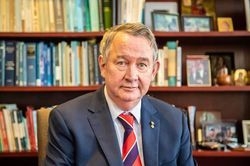
Extracts from Professor Greg Craven, Catholic Weekly, 2 December 2021
Even Beelzebub must feel sorry for the Catholic Church in Australia. Beset externally by enemies in the media, politics and what passes for the intelligentsia, it now has its own self-righteous fifth column.
These worthies like to describe themselves as “reformers”, but they want to reform the Church the way woodworm reforms a house. They really are demolitionists, hoping to clear away the existing Church, and replace it with one in their own image. On 18 November, the demolitionists had their electronic clan-gathering, grandly titled a “Convocation” around “The Future of Catholicism in Australia”. It drew attendees from all the groups composing the Australian Catholic Coalition for Church Reform, including various gaggles of “concerned” Catholics, “inclusive” Catholics, and WWITCH, a curiously named Catholic women’s group. The website is very proud that 1500 people participated. To put this in context, the last census revealed 5,210,000 Catholics, so that is a whopping 0.03 per cent. Or for further comparison, outside COVID, 3,000 people visit St. Mary’s Cathedral in Sydney each day. A quarter of a million attended Pope Benedict’s World Youth Day Mass at Randwick in 2008. “Their immediate aim seems to be to hijack the Plenary with a view to first embarrassing the Australian Bishops, and then the universal Church.” So why would one worry about this micro-swarm of gnats? Mainly because, in the wake of the appalling scandal over Church child abuse, some Bishops are briskly walking scared. Counter-intuitively, dedicated demolitionists are appointed to prominent Church bodies, and are influential in the current Plenary Council. This is ironic, because the main agenda of the demolitionists is to demote the Bishops. The chief episcopal crime has been a critical failure in “governance”. Governance has been a constant theme of the demolitionists since luminaries on the Truth Justice and Healing Council joined with the Royal Commission that it was supposed to be monitoring to identify bad governance as one of the prime causes of child abuse. This had enormous tactical advantages, as the Bishops are the governors of the Church. Therefore, the horrors of child abuse were their fault. It often seemed worse to be a Bishop than a child-abusing priest, cleric or layman. The influence of the Bishops consequently should be greatly diminished in favour of responsible laypeople. Guess who? Make no mistake about it: this is not a People’s Revolution. Rather, in the tradition of the French Revolution, the high bourgeoisie want to displace a perceived episcopal aristocracy..........The watchword of demolitionists is “synodality”, which actually means collective and discerning decision-making – within the bounds of doctrine and canon law – but has been appropriated by demolitionists as a sort of self-guided democracy.....(more). Photo: Emeritus Professor Greg Craven, former Vice Chancellor Australian Catholic University, Photo Giovanni Portelli, Catholic Weekly 202112
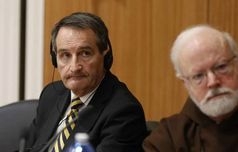
Without change Church’s mission is at risk, Plenary reformers say
Extract from Adam Wesselinoff, Catholic Weekly, 2 December 2021
The Catholic
Church’s clerical leadership, norms of governance, language and
tradition have been raised as areas of potential reform at a significant
post-Plenary convocation. The
third convocation of the “Future of Catholicism in Australia” series,
held on 18 November, was organised by the Australasian Catholic
Coalition for Church Reform (ACCCR) to reflect on the first session of
the Plenary Council. Nine speakers
offered assessments ranging in tone from constructive proposals and
expressions of hope, to out-and-out opprobrium about the “institutional
church”. The discussion
across the evening focused predominantly on participants’ frustrations
that the first Plenary session did not facilitate thorough and concrete
proposals for church governance reform which they see as
necessary. This reform was viewed as
necessary by participants because the Church’s traditional structures
were seen as an impediment to its mission. Former
Royal Commissioner Robert Fitzgerald said that during his tenure at the
child abuse Royal Commission “it became clearer to me that perhaps the
church, the institutional church, was now at a serious point of actually
failing or impeding the ability of people to come to God”. He described
the Plenary process as a struggle against fear, “the great disenabler
in life”, which he attributed to a “bloc” of conservatives acting “from
an ideological position, who wish to resist change”. The Plenary risked becoming a squandered opportunity and the Church a “laggard” if reform was not grasped, Fitzgerald added. A
similar view was put by Francis Sullivan, Chair of Catholic Social
Services Australia and former CEO of the Truth, Justice and Healing
Council. “We were supposed to be a
deep listening Church. This Plenary Council is not about the Bishops,
it’s about us,” Sullivan said. The Catholic
Church’s clerical leadership, norms of governance, language and
tradition have been raised as areas of potential reform at a significant
post-Plenary convocation. ..........(more). Photo: Francis Sullivan, Chair Catholic Social Services Australia, Catholic Weekly 20211202

Limited Extracts from Isabelle de Gaulmyn, CathNews NZ, Subscription Journal La Croix International, 2 December 2021
Hard times for bishops! For those who are used to the generally compliant tones that have characterized the Catholic faithful’s relationship to the hierarchy up till now, it must be said that this is changing. Bishops in France are now being directly and harshly criticized by “ordinary Catholics” following the publication of the Sauvé Report, which brought to light serious failures in the way Church leaders in the country have handled sex abuse cases. Increasingly, Catholics are openly challenging the legitimacy of their bishops. The lay faithful no longer tolerate the excesses of solitary power. They also want to have a say and, in particular, they want to be a part of the process that decides who becomes a bishop. Because the entire paradox is there. In the Church, the bishop is all-powerful. It’s ludicrous to think the pope can appoint all the world’s bishops. No matter how brutal it is to call this into question, it is merely a backlash against a system of governance where power is concentrated in the hands of one man who holds all the keys to a diocese. If a bishop makes a mistake or if he is not up to the task, it is the entire Catholic community that has to pay the consequences. And the local Church is permanently penalized. In view of the importance of the position, choosing the wrong man can end up being disastrous. The appointment of bishops is undoubtedly one of the Church’s most archaic procedures. It’s ludicrous to think that the pope can individually appoint them all. If we take into account that there are more than 5,000 bishops in the world, we can see that even a pope who never sleeps could never accomplish this task..........Bishops are actually chosen by the papal nuncio — the pope’s ambassador in a country — or by influential cardinals or bishops in Rome. Or by a combination of the above. The process of selecting the candidates remains confidential, even ultra-confidential since it is protected by the famous “pontifical secret”.....(more). Photo: Isabelle de Gaulmyn La Croix Int, CathNews NZ 20211202

Extract from Michael Leahy, Pearls & Irritations, John Menadue website, 26 November 2021
By opposing Victoria’s Equal Opportunity Bill, Catholic bishops’ demonstrate the tension in their church’s teaching on discrimination. Societies like Victoria’s have long histories of discrimination against groups held to be offending against community moral standards. Divorce required the ordeal of proving fault, and invariably attracted a lasting stigma. Women could be denied access to jobs or housing because they were divorced. Homosexuals could even be prosecuted as criminals for indulging in their “perversions”. The possibility of sexualities other than those conferred by biology were inconceivable. Later in the 20th century, however, attitudes to sexuality, divorce and re-marriage changed, and laws were enacted to ease the discriminatory burdens imposed on relevant victims. In the 21st century, not only were most state laws prohibiting homosexual conduct repealed, but gay marriage was also permitted under the Commonwealth Marriage Act (1961, amended 2017). In short, the community at large rejected the traditional view of homosexuality as a perversion from which society needed protection, and demanded removal of all forms of discrimination against homosexuals. Indeed, the community at large accepted the view that human sexuality was much more diverse and complex than the simple biological binary supposed from ancient times. Acceptance of change in assessments of such fundamental aspects of human life is, of course, not instant or easy. Attitudinal change can sometimes stem from fads or misguided ideologies. But underpinning these changes was something deeper than fads or ideologies.
The patriarchal family structure was in its death throes, and the dignity of the individual human person was being recognised as demanding respect. Freedom to define one’s own sexuality, and to express it in relationships formed and terminated by one’s own choice, was one such demand. This elevation of personal dignity above prevailing convention as a criterion for measuring the morality of sexuality, and of its expression, is thus better understood as an evolution of moral consciousness on the part of a community emerging from the tyranny of patriarchy. Those whose dignity was most seriously impugned by prevailing convention were members of the Rainbow community: homosexual behaviour was not only condemned as perverse but also made criminal. It was no fad or ideology that led to the repeal of laws against such behaviour but developments in the science of psychiatry. In Australia on October 15, 1973, the Australian and New Zealand College of Psychiatrists Federal Council declared that homosexuality was not an illness...........(more). Photo:woman-rosary Unsplash, Pearls & Irritations, 20211126
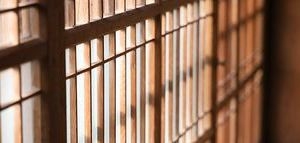
Catholic Social Services Victoria: Stop kicking the kids down the road
Extract from CSSV, Catholic Outlook, Diocese of Parramatta, 25 November 2021.
"A society is fruitful when it is able to generate processes of inclusion and integration, of caring and trying to create opportunities and alternatives that can offer new possibilities to the young, to build a future through community, education and employment” — Pope Francis, World Youth Day 2019, speaking at Las Garzas de Pacora Juvenile Detention Centre
The Communique from the November Meeting of the Australian States and Territories’ Attorneys-General (MAG) in relation to the issue of children in custody was underwhelming. While it is good to see that the MAG has continued to speak about the serious problem of keeping children of a very young age in prison, it is now three years since its previous proposal to study the issue. Despite much public concern and hundreds of local and international organisations and experts, including the UN, advocating to ‘raise the age’ to at least 14, the MAG’s announcement has kicked the issue, and therefore the kids, down the road by announcing it will support ‘development of a proposal to increase the minimum age of criminal responsibility from 10 to 12’. This ‘announcing an announcement’ is not the commitment we need that will give children the best chance at a bright future and keep our communities safe over the short and long term. To be clear: this is not a national commitment to raise the age to 12, but rather a minimal mention of ‘developing a proposal’, surrounded by a contingent of caveats and exemptions. “Catholic Social Services Victoria (CSSV) takes criminal justice and child welfare seriously. Raising the age two years from 10 to only 12 defies all expert and international advice. As last reported numbers stand, it would actually impact less than 10% of the 500+ children under the age of 14 in custody across the country, a mere token.” says Josh Lourensz, Executive Director of CSSV. “It falls short of the bare minimum age standard of 14 that legal (the Law Council), medical (AMA) and indigenous experts declare necessary and urgent. The ACT alone has taken substantial action in line with expert advice, committed to raising the age to 14 and has addressed MAG’s ultra-cautious concerns in a clear roadmap for releasing under-14s from custody......(more). Image: De an Sun Unsplash. Catholic Outlook, Parramatta, 25 November 2021
Extract from Archbishop Mark Coleridge, Plenary Post, 25 November 2021
Brisbane Archbishop Mark Coleridge has said the way in which the Fifth Plenary Council of Australia and the Synod of Bishops process are interacting is a great sign of how the local and universal Church can work together. "Here in Brisbane and right across Australia we are very, very much in synodal mode at the moment," he said in a video late last month. "At this time there is a great interweaving of the Plenary Council and the Synod (of Bishops) process. In other words, the local and the universal working together and enriching each other." Archbishop Coleridge said the Plenary Council has been considering the mission of the Church in Australia, while the Synod is seeking to engage the Church globally. In his video, he says the Synod process could be seen as an invitation to each person to tell Pope Francis what they think about the Church worldwide. "This is really a call to enter into a new way of being the Church, and on this journey of the worldwide Synod, the process itself is in many ways the product," he said.......(More). Click HERE to watch Archbishop Coleridge's video.

Extract from Plenary Post, 25 November 2021
The local consultation phase for the 2023 Synod of Bishops has been extended in Australia by more than two months, following the Vatican’s decision to allow more time for dioceses to hear from their people. The Holy See announced in late October that the original request for national syntheses of diocesan consultations to be sent to Rome by April 2022 had been changed, with them now due by August 15, 2022. At the recent plenary meeting of the Australian Catholic Bishops Conference, a new timeline was outlined and accepted as the national approach. It extends the original timeline for local consultation, with the submission of local responses to the Synod of Bishops’ questions pushed back from December 12, 2021 to February 27, 2022.......(More)

"Protecting the institution and the perpetrators was always the most important factor for the Church. (Protecting) the victims, on the other hand, simply did not occur," said the 60-year-old Bishop Wilmer, head of the northern German Diocese of Hildesheim. He made his remarks to some 200 representatives of religious, social and political groups who were gathered for an annual diocesan-sponsored reception in Hannover. The bishop was filling in for Cardinal Reinhard Marx, who had to cancel his participation after he tested positive for the coronavirus. Wilmer, whose address was titled "SOS -- It is no less a matter of saving our souls", warned that the Catholic Church would no longer be able to play a dominant role in society. Church must re-discover its Biblical roots "The Church as an institution will shrink and will be far more modest. It will just be one voice among many offering to explain the sense of life on earth," he said. "While it will be smaller, it will be ecumenical. Our faith will cover a smaller area but will grow in depth and in its Biblical roots," he predicted. Heiner Wilmer was completing his third year as the worldwide superior general of the Dehonians (Priests of the Sacred Heart) in 2018 when the pope picked him to be bishop of Hildesheim. And many in Germany say the former head of the Dehonians is truly "a Francis bishop". He concentrated on three key questions during his address in Hannover: How much say do bishops still have today? What are people looking for? And are the Churches still of any use today?....(more). Photo: Bishop Heiner Wilmer Moritz Frankenberg dpa MaxPPP La Croix Int 20211124
Francis outlines the traits he's looking for in bishops with a prayer card distributed at the start of the plenary assembly of the Italian Episcopal Conference
Limited Extract from By Loup Besmond de Senneville, Vatican City, Subscription journal La Croix International, 24 November 2021
If a picture is worth a thousand words, Pope Francis may have found a prayer that's worth at least a thousand speeches. It's called "Beatitudes for Bishops" and the pope gave a copy of it to each member of the Italian Episcopal Conference (CEI) on Monday at the beginning of their weeklong plenary assembly in Rome. The small prayer card bears an image of Jesus carrying "the lost sheep" on his shoulders and extols the Church's shepherds to be humble servants of the People of God. "Blessed is the bishop who makes poverty and sharing his lifestyle," says one of the beatitudes. Another praises the bishop "who is not afraid to wet his face with tears, so that in them may be reflected the sorrow of the people" and "the work of priests". "Blessed is the bishop who considers his ministry a service and not a power," says another. "Blessed is the bishop who does not shut himself up in government buildings, who does not become a bureaucrat more attentive to statistics than to faces" and the one "who has a heart for the misery of the world". "Blessed is the bishop who is not afraid to go against the grain for the Gospel," says yet another. "Blessed is the bishop who works for peace, who walks along the path of reconciliation, who plants the seed of communion in the hearts of priests, who accompanies a divided society along the path of reconciliation," says another in this list of beatitudes tailor-made for the Church's leaders........(more)
Re “Job laws unfair: faith leaders” (The Age, 17/11). The Catholic bishops of Victoria are determined to ensure that discrimination – particularly against LGBITQ+ persons – is an integral part of their church policies and practices. The Second Vatican Council, the highest authority on Catholic teaching, took a different position.
In its 1965 Pastoral Constitution of the Church in the Modern World, it stated that “with respect to the fundamental rights of the person, every type of discrimination, whether social or cultural, whether based on sex, race, colour, social condition, language, or religion, is to be overcome and eradicated as contrary to God’s intent”.
Fundamental personal rights are still not being fully honoured in Victoria, but with its Equal Opportunity (Religious Exceptions) Amendment Bill 2021, the government is working to remedy that. Sadly it is facing opposition from those who are meant to be proclaiming and building the Kingdom of God, the hallmarks of which are love, justice, freedom and equality.
If
the bishops want to promote a truly Catholic ethos in their schools and
other organisations, and honour the fundamental personal rights of all
citizens in Victoria, they should lay down their arms in opposing this
bill, abandon their crusade to maintain discriminatory exceptions and
accept that the Way of the Gospel is not the path of discrimination. Source: The Age
Dr Peter Wilkinson, Catholics for Renewal, Lower Templestowe
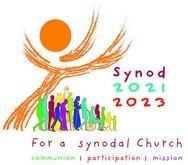
Extract from CathNews NZ, 18 November 2021
New Zealand’s Catholic bishops have opened the diocesan phase of the 2021-2023 synodal journey. We should “unmute ourselves”, and everyone should share their dreams for the Church says Auckland’s bishop, Patrick Dunn. We should also consider “outrageous” issues in walking the synodal journey, Dunn said as he opened the synod in his Auckland. As Auckland remained in level 3 lockdown, Dunn led the liturgy opening on Zoom, Facebook live and YouTube. Auckland’s synodal journey will involve people being invited next month to gather in small groups, he said. “I realise that this couldn’t be a more inconvenient time for us in Auckland diocese. We’re in lockdown. It’s coming up for Christmas and the summer break . . . It might have to be on Zoom or online, please God, it might be able to be in person. “But we’re asking people to share what is in your hearts and to listen to what others have to say.” Dunn suggests questions to ponder could include: What is our dream for the Church? How do we think the Church could or should change? How would we like the Church to be? “One really big question, it’s a little bit of an outrageous one, is: does the current parish structure suit our purposes, especially in an urban setting. "Parishes have been very resilient through history, but are we perhaps being called to think of a different model or different models in a large city like Auckland city itself?” Dunn also wants people to consider how effective we are as a Church in caring for the poor. “Even with the present vaccination programme in New Zealand, one of the points being highlighted in the past couple of weeks has been groups who feel on the fringes of society. “They feel that they don’t belong to mainstream New Zealand society. That mainstream New Zealand society doesn’t care about them. Are we caring for them?” Dunn asked. It’s important even as people share their thoughts and dreams during the synodal journey, that they also listen to others, especially those who may be overlooked in our society. Wellington’s Cardinal John Dew stressed the call to serve in his homily at the synod’s opening at St Teresa’s Pro-Cathedral. 2015 Dew said he was struck by two specific lines in Pope Francis’s speech at the Synod on the Family. "The first was ‘the only authority we have is the authority of service.’ “I have repeated it many, many times, and I will never forget him saying those words,” he said. “The second was, ‘it is precisely this path of synodality which God expects of the Church of the third millennium’.” “It’s hard to be succinct and to put into a homily what ‘synodality’ is, but, in a nutshell, it is about all members of the Church, all of us, walking the path of life together, truly listening to and being of service to one another,” he said. Second Vatican Council’s vision, Dew said. “Let’s make it an adventure: walking together with faith; listening to each other (as Francis put it, ‘How good is the hearing of your heart?’); engaging in a process of healing guided by the Holy Spirit, and supporting one another, looking for new paths and new ways of speaking.”....(more).

Limited extracts from Mollie Wilson O’Reilly, United States. subscription journal La Croix Internatiuonal, 17 November 2021
Amid the protests in American cities that followed the May 2020 murder of George Floyd by police, Los Angeles Archbishop José Gomez, the president of the US Conference of Catholic Bishops conference, issued a statement. "It is true what Rev. Martin Luther King, Jr. said, that riots are the language of the unheard," Gomez wrote. "We should be doing a lot of listening right now. This time, we should not fail to hear what people are saying through their pain." It was a sensitive response, expressing compassion and a humble commitment to "listening" as the necessary first step toward a more just society. It bears no resemblance to the speech Gomez delivered to a Spanish conference earlier this month, a speech that left me wondering who on earth he's been listening to. That talk, a keynote address for a conference on "Political Correctness: Liberties in Danger," was pre-taped and delivered in Spanish but shared as an English text by the Archdiocese of Los Angeles. In it, Gomez explains that "new social justice movements" that function as "pseudo-religions" have been "unleashed" in American society, and demand resistance from Catholics. Gomez says that "we should not be intimidated by these new religions of social justice and political identity," but he sounds pretty intimidated. His first section is conspiratorial and riddled with anti-Semitic tropes, as he describes the rise of "an elite leadership class...that has little interest in religion and no real attachment to the nations they live in...which is in charge in corporations, governments, universities, the media, and in the cultural and professional establishments" and "wants to establish what we might call a global civilization." Gomez is not building a specifically anti-Semitic argument—there's nothing specific about his argument at all—but the rhetoric he chooses has a very ugly history, and its presence here is alarming. "For years now," Gomez continues, "there has been a deliberate effort in Europe and America to erase the Christian roots of society and to suppress any remaining Christian influences." Where does this reactionary vision come from? Which people has Gomez been listening to?..........Certainly not Catholics who work with the Black Lives Matter movement, who could explain how standing up for the dignity of their neighbors is an expression of their faith. Not admirers of Dorothy Day, who would have stopped him from ludicrously suggesting that her example somehow validates his idea that "the 'social justice' story" is an atheistic "rival" to Christianity. It is disorienting to hear a bishop referring pejoratively to "social justice". It is disorienting to hear a bishop referring pejoratively to "social justice".....(more). Photo: struggling-to-listen La Croix International 20211117
Extracts from Frank Brennan, Eureka Street, 17 November 2021
It’s four years since the Australian Parliament amended the Marriage Act 1961 to provide that marriage means ‘the union of two people to the exclusion of all others’. The legislation followed the plebiscite on same sex marriage. To address the concerns of some religious groups, Prime Minister Malcolm Turnbull set up an expert panel chaired by long time Liberal Party minister Philip Ruddock to report on whether Australian law adequately protected the human right to freedom of religion. Having served on that committee, I made some public observations two years ago about our recommendations: ‘The Ruddock committee conceded that in theory there is a major lacuna in the array of anti-discrimination legislation. If you legislate to prohibit discrimination on the basis of gender, sexual orientation, age, race, or disability, why not on the basis of religion? …We recommended both a tweaked tightening of the exemptions for religious bodies in the Sex Discrimination Act and the introduction of a Religious Discrimination Act. The delay in release of the report and the shambolic handling of its publication highlighted the political problem with our recommendations. The Turnbull wing of the Liberal Party favoured the tweaked tightening of the Sex Discrimination Act provisions but not the introduction of a Religious Discrimination Act. The Morrison wing of the Liberal Party were troubled by the former but attracted to the latter.’ The issue is now back on the boil both in Canberra and in Melbourne. The tweaking of exemptions for religious bodies is not just a Commonwealth concern. It is also a state issue. This week the Victorian Parliament is considering the Equal Opportunity (Religious Exceptions) Amendment Bill 2021. And the Morrison Government is secretly cobbling together a Religious Discrimination Bill.......The tweaking proposed by the Victorian government has upset the Victorian Catholic Bishops and the leaders of several minority faiths who have published an open letter complaining that ‘the Bill erroneously disconnects religious belief from conduct that is consistent with this belief.’ The November 16 letter from the religious leaders has no signatories from the Uniting Church, and only one Anglican bishop. The signatories speak of parents’ expectation that a ‘school’s environment faithfully represents the religious ethos in every respect including the conduct of all teachers and staff’. The Victorian bill would allow ‘reasonable and proportionate’ religious discrimination in the employment of staff when ‘conformity with the doctrines, beliefs or principles of the religion’ is ‘an inherent requirement of the position’. The religious leaders are left wondering what’s reasonable, what’s proportionate, and what’s inherent. Would the Victorian law allow the evangelical school to give preference employing the evangelical gardener?...(more)
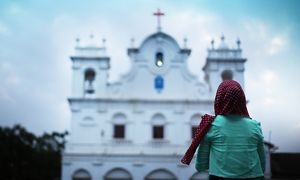
Extracts from Michael Furtado, Eureka Street, 11 November 2021
From my earliest years the primary lens through which I developed an appreciation of diverse identities was through my Catholic parish, St Thomas’, Calcutta. Situated in plush Middleton Row and centred upon a property allocated to Archbishop Carew by Governor Vansittart in 1827, the parish premises included a handsome Palladian church and convent school – Loreto House – both of them positioned within this once almost exclusively European enclave and within close proximity to my Jesuit school, St Xavier’s College. This complex of institutions and buildings was intended to educate Catholic members of the European colonial establishment, who lived in the nearby Georgian villas and mansions of South Calcutta and Fort William. By the time of my birth a steady exodus of such people had begun. To the UK and Canada they went and also to Australasia and Southern Africa, where neo-colonial resistance to modernity had taken on a new lease of life through various race-restrictive immigration policies and, notably, apartheid. Within Calcutta the nature of the clergy and laity had begun to change. The last European Jesuit archbishop was succeeded by an Anglo-Indian, Trevor Picachy, who later received the red hat. Our own parish clergy, once exclusively Anglo-Irish, followed by Anglophile Belgians, all of them Jesuits and accounting for India having the largest Jesuit province on the globe, began to register the leadership of Anglo-Indians. A measure of how closely this clerical cohort reflected the painfully slow pace of a newly emerging Indian Catholicism is that at one stage our Parish Priest was the brother of the Cardinal and the Mother Superior of the Loreto Order was the sister of the Vicar General. As with church administration, so also was the congregation. Westernised Anglo-Indians began to take the place of Europeans. While the front pews, with names affixed to them, were technically reserved for the handful of colonials still ‘staying on’, our parish with a nearby club called The Grail, remained the centrepiece of a neo-colonial construction of Catholicism in this vast diocese. The children of Anglo-Indians soon exceeded the European component at both schools and the Latin Mass was sung with gusto by this hybridised cohort, who colonised the Grail Club with cultural and musical tastes drawn from Europe. Just imagine the revolutionary impact upon this stultifying and highly resistant cultural corner of Catholicism by Mother Teresa and her Missionaries of Charity! In time, the mass of Anglo-Indians, who regarded an indigenised India as a threat to their Western cultural identity, emigrated to the UK and Canada where, unlike Australia and New Zealand at that time, no racial tests applied to sifting applications for emigration primarily based upon appearance and a propensity to portray Western values, whatever these were meant to be. Quaint Aunt Vera had herself photographed in sunlight alongside her shaded White husband to beat this colour-bar........Meantime, the side aisles, reserved for ‘Native Indians’ and servants and others of subordinate identity in the neo-colonial pecking order, were thrown open to all, and the clergy as well as the faithful began to be drawn in greater numbers from the Indo-Portuguese Goan community to which my parents belonged. Thus displacement and replacement forcibly refurbished a church community that would have died had it not addressed and responded to the inclusive inculturating influences unleashed by Vatican II. ...(more). Photo: Indian Catholic Church Eureka Street, 11 Nov 2021
Extract from Christopher Lamb, The Tablet, 9 November 2021
The Vatican is calling on bishops across the world to involve Christian leaders from other churches in the synod process in a move that could turn it into the most significant ecumenical event of recent times. A joint letter from two Rome-based cardinals recommends leaders of Christian communities take part in the bishops’ synodal discussions and help them draft the official reports. It also suggests that delegates from other churches are sent to take part in the diocesan synods taking place across the world; that they address synod assemblies, send in written reflections and organise “listening sessions”. The 2021-2023 synod process launched by Pope Francis last month is the most ambitious Catholic renewal project in 60 years. It includes a listening and consultation process across the 1.3 billion-member Church. Each diocese has been asked to hold a synod with bishops in each country and region synthesising the results and submitting them to Rome. A synod assembly of bishops will then take place in the Vatican in 2023. The instruction from the Vatican says ecumenical representatives should be involved at every stage of the process, which will involve all denominations in a Catholic renewal process in a way that is without modern precedent. “One of the gifts Catholics can receive from the other Christians is precisely their experience and understanding of synodality,” explain Cardinals Mario Grech and Kurt Koch in the letter. “The synodal shaping of the Catholic Church at all levels has significant ecumenical implications as it makes it a more credible dialogue partner.” Cardinal Grech, who is Secretary-General of the Synod of Bishops, and Cardinal Koch, who is President of the Pontifical Council for Promoting Christian Unity, sent their letter to all bishops with responsibility for ecumenism and to the synods of the eastern Catholic Churches. It was, they explained, “designed to some practical suggestions to ensure the ecumenical dimension of the synodal journey.” The synod handbook emphasises that ecumenism has a “special place in the synodal journey” adding that consultations should include “all the baptised”, regardless of denomination. In their letter the cardinals point out that “listening should concern the totality of those who are honoured by the name of Christian,” pointing out that “all the baptised participate to some degree in the sensus fidei.” The sensus fidei is the notion that the Church as a people, united with the bishops, carries the living tradition of Christianity's essential teaching....(more)
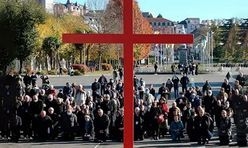
Extract from CathNews NZ, France 24, NYT, 11 November 2021
The bishops of France will sell real estate assets to compensate sexual abuse survivors who were victims of clergy and staff of the French Catholic Church. “We will not take money from the Church’s yearly parish contributions, we will not use donations that the faithful make to us for [our missions]”, Éric de Moulins-Beaufort, president of the Bishops’ Conference of France (CEF) announced on Monday. The Independent Commission on Sexual Abuse in Church (ICSA) urged the Church to pay survivors with its own assets instead of relying on donations from parishioners. They insisted each person be compensated individually and said the reparations should be studied case by case. Paying reparations to survivors without counting on donations from parishioners will cause the French Church significant financial stress. The Catholic Church has been robbed of its assets twice in French history. The first occasion was during the French Revolution in 1789. The second instance occurred in 1905, following a law separating the Church and state was instituted. That means most churches belong to and are not owned and maintained by the Church but by local municipalities. And unlike most other European countries, the Church in France doesn’t receive any state subsidies. “The entirety of the Church’s income comes from donations. We live off donations,” deputy secretary-general and director of communications at the CEF Karine Dalle told FRANCE 24. The total sum the French church needs to compensate victims is not yet defined, but it will be immense. Moreover, as other survivors come forward, the compensation is expected to grow. “The 330,000 victims in the report are a statistic for now. We still don’t have their names. We don’t know who they are,” Dalle said. “We’re completely in the dark.” It will be up to the Independent National Authority for Recognition and Reparation (INIRR), headed by lawyer Marie Derain de Vaucresson, to determine the exact amount allocated to each survivor. “We will ensure that no one is left behind,” Archbishop de Moulins-Beaufort told reporters after the annual meeting of bishops held last week. In October, the ICSA released a monumental report unveiling the extent of child sexual abuse that has taken place in the hands of the French Catholic Church. Part of the report included recommendations on how the Church should compensate the survivors.....(more). Photo: French-bishops-kneel France CSA compensation CathNews NZ 20211111
Extract from by Sarah Mac Donald, The Tablet, 8 November 2021
The Vatican’s decision to extend the duration of the first phase of the synodal process has been welcomed by the diocesan coordinator of the Diocese of Killala’s listening process. Fr Brendan Hoban, who has helped oversee the three-year Placing Hope in Faith process, told The Tablet that the move “makes sense”. Last week, the Vatican announced that the Council of the Synod of Bishops had decided to extend the deadline for the presentation of the summaries of the consultations by Episcopal Conferences until 15 August 2022. The move followed numerous requests for more time in order to give people a greater opportunity “to have an authentic experience of listening and dialogue”. Welcoming the decision, Fr Hoban told The Tablet that it would be difficult to deliver a genuine, effective and credible listening process even within the changed timetable. “We need to be aware of the legacy of failed ‘listening’ exercises in the past and the resulting and enduring distrust that remains,” he warned. He noted that in Killala diocese, the listening section of the synodal initiative, lasted three years from 2015-2018. “While it is understandable that the ‘listening to the people’ segment of the present synodal journey hasn’t the luxury of that time-span, any indication that the listening process is being rushed will only serve to convince Catholics that it is not being taken seriously,” the retired Co Mayo parish priest said. Two key elements of the listening process in Killala were a confidential survey of Catholics the results of which were analysed by an independent research company and a diocesan assembly, comprising 300 delegates from the 22 parishes of the diocese, who voted confidentially to prioritise the top five proposals in ten different categories. “The time, attention and resources devoted to ensuring an honest and respectful listening process were necessary, indeed essential in convincing those who participated that the process was meant to be and was seen to be taken seriously,” he said. Fr Hoban stressed that “an open agenda is essential”. He said: “Ruling out matters as not for discussion effectively compromises the integrity of the process and confirms the belief, as before with listening exercises in different dioceses, that nothing has changed or will change and that keeping control of the process was more important than finding out what people think. “Time and again Pope Francis has warned against what he calls ‘the virus of clericalism’. It would be a pity if the synodal pathway, entered into by so many with such hope and purpose, becomes just another failed victim of an inflexible or manipulative clericalism. The difficult truth is that synodality and clericalism are polar opposites – if you are one, you can’t be the other. You can’t be both.” Last week, Bishop John Fleming of Killala told the Irish Catholic newspaper that he was willing to bring the views of the people of his diocese to the Vatican on issues such as mandatory celibacy and women priests....(more)
A leading Catholic layman in Australia says the inaugural assembly of the Church in his country's Plenary Council was devoid of strategic focus
Limnited Extract from Francis Sullivan, Australia. subscription journal La Croix International, 6 November 2021
The First Assembly of the Fifth Plenary Council held few surprises. The program made sure of it. Proceedings were carefully choreographed and the agenda was deliberately anodyne. It took several days before participants found their feet. The 'deep listening' process of scripture reflection and sharing in small groups did engender a spirit of collegiality. At the same time, it constrained free flowing discussion and overwhelmed any effective canvassing of the issues confronting the Church. The upshot was a week devoid of strategic focus. Given that so much time was spent on prayerful reflection, not enough was available to the task at hand. The Catholic community had supplied 17,500 submissions in an initial consultation phase. Yet the Plenary was not presented with any report on what those submissions contained, nor was it presented with any draft resolutions from the submissions. It can only be assumed that the Bishops Steering Group deemed the submissions to be of insignificant value to the Assembly. The expert theologians, scripture scholars, canonists and public policy advisors were kept at a distance. It was if the participants were meant to start from scratch. What did emerge was the diversity of views over the role and purpose of the Church. Again, no surprise there! Though more important was the lack of clarity over the actual starting point for the conversation. Participants were constantly reminded that Pope Francis was calling for a Church motivated by a 'missionary impulse'. It seemed fair to assume therefore that the task was to imagine what that looks like for the Church now and into the future. Yet the daily feedback from the working groups roamed far and wide from personal devotional practices all the way to cutting edge pastoral outreach. Again, no surprises when you give Catholics free rein! The situation would be less distressing if there had been an overt recognition of the crisis the Church faces. A crisis that is both of its own making and one that prompts questions about religious belief in our world today. This crisis needs to be addressed by the Plenary Council in two fundamental areas: internal organisation and pastoral disposition. On the first, the organisational life of the Church has already been the subject of intense scrutiny by the Royal Commission into Institutional Responses to Child Sexual Abuse. One of the seventeen volumes of the Final Report dealt specifically with the Catholic Church. It contained clear recommendations for governance and culture. Following this, the bishops and religious leaders commissioned a two-year study that produced The Light From the Southern Cross report into governance and cultural issues. These two reports outline a similar roadmap for change. But the elephant in the room is the authority of bishops......(Source)
Extract from John Lavenburg, Crux, 4 November 2021
NEW YORK – Pope Francis’s decision to restrict celebration of the Traditional Latin Mass in July, says Cardinal Blase Cupich, was grounded in uniting the global church around a “single and identical prayer” that is the contemporary Mass. Cupich, the archbishop of Chicago and one of Pope Francis’s closest U.S. allies, made the comments in a Nov. 1 post to the Pray Tell blog titled “The Gift of Traditionis Custodes,” where he goes in depth about his support for and importance of Pope Francis’s decision. Embedded in the reason for unity, Cupich makes the case against any use of the pre-Vatican II Traditional Latin Mass after the Vatican II reforms because “the word ‘reform’ means … that we leave behind a former way of celebrating the sacraments and adopt a new form.” Cupich notes that when other reforms occurred in the Church the former practice was left behind. He cited Pope John Paul II’s reformation of the Code of Canon Law of 1917 “to [ensure] it conformed to the teachings of the Second Vatican Council,” and John Paul’s 1993 reformation of the Catechism of “bringing it up-to-date in view of the theological insights of the council.” “No one would think of arguing that the earlier forms of the Code or the Catechism could still be used, simply because the word reform means something,” Cupich wrote. “And so it has to mean something with regard to the liturgical form.” Pope Francis tightened permission for the celebration of the Traditional Latin Mass in a motu proprio, meaning an addition to Church law issued on the pope’s own authority. It’s titled Traditionis Custodes, meaning “Guardians of Tradition.” Under the terms of the ruling, priests have to get permission from their bishop to celebrate the Traditional Latin Mass; any priest ordained from here on out who wishes to celebrate the Mass must submit a formal request to their bishop, and the bishop will then consult the Vatican before granting permission. Pope Francis also tasked bishops with determining specific times and locations where the Traditional Latin Mass can be celebrated, which a number of bishops have determined in recent months.....(More).
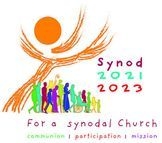
Extract from CathNews, ACBC Media Blog, 4 November 2021
Representatives of Australian dioceses have gathered online to consider how to support local engagement with the global process leading to the 2023 Synod of Bishops in Rome. On October 17, dioceses across the world hosted celebrations to launch the journey towards the XVI Ordinary General Assembly of the Synod of Bishops. A week earlier, Pope Francis had officially opened the Synod, which has the theme “For a Synodal Church: Communion, Participation and Mission”. The Synod process has local, national and international components that will unfold between October 2021 and October 2023. The gathering of local coordinators last week was designed to help dioceses share their insights and determine how they can best invite the People of God to take part in the consultation. That included hearing from dioceses that have held local synods or assemblies in recent months while also engaging with the Fifth Plenary Council of Australia and now the global Synod of Bishops. Last weekend, the Holy See announced the extension of the consultation period for dioceses around the world. Trudy Dantis, the director of the National Centre for Pastoral Research and national coordinator for the Synod of Bishops process, said the Australian Catholic Bishops Conference will consider at their biannual plenary meeting next week how that change will be incorporated into the national plan.....(more). also see www.catholic.org.au/synodalchurch.
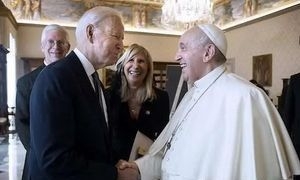
What Catholic opposition to Joe Biden and Pope Francis may mean for the future of the Church in the United States
Limited Extract from Massino Faggioli, Signs of the Times, Sunsacription journal La Croix International, 2 November 2021
President Joe Biden's recent meeting at the Vatican with Pope Francis has further unmasked the animosity that the Catholic right and alt-right in the United States harbors toward the current Bishop of Rome. In fact, that animosity has become even more virulent and graphic. One American bishop (a Catholic bishop!) even called Francis a "serpent", a slur reminiscent of 16th-century anti-Catholic tropes against the papacy and the Jesuits. The assimilation to animals as a way to disparage the pope is a bizarre reception of Francis' encyclical Laudato si'. But it's the only reception there is in some places. (The bishop in question later deleted the offensive tweet and apologized, but he kept tweeting polemically about the pope's meeting with Biden.) Many wonder what would have happened, under Francis' predecessors, if Catholic bishops had publicly insulted and showed contempt for the pope -- something that the Code of Canon Law (can.1373) counts among the "crimes against ecclesiastical authorities and the freedom of the Church". But the phenomenon has become too big to be treated from a canonical point of view alone. This phenomenon is a scandal, but no longer limited to isolated cases. It has now become a fixture in the relationship between the most influential leaders of the American Catholic right and the current pope. This animosity of the Catholic right and alt-right began, not with the 2020 election of Biden as president, but more than seven years earlier with the election of Francis as Bishop of Rome. Disregard for tradition by those who profess to defend it. It's the rabid reaction against the fact that the trajectory of Catholicism – both in the US and globally – is not following the plans of those who envisioned not just a naturally conservative Catholicism, but conservative in the ways of conservative Catholicism in the United States.....(Source). Photo: Pope Francis Joe Biden Vatican audience, Vatican Media UPI MaxPPP, La Croix Int 20211102

Extract from Sr Patty Fawkner SGS, Catholic Outlook, 29 October 2021,
When the Catholic Church in Australia gathered online for the first General Assembly of the Fifth Plenary Council earlier this month, Congregational Leader Patty Fawkner participated as a Council Member. “Here come the Catholics; here comes everyone.” Whether or not the great Irish writer James Joyce actually said these words, as is often claimed, is a moot point. But it’s too good a line not to use in describing my experience of the first General Assembly of the Plenary Council, which was held from October 3-10. Such diversity! Diversity of race, role and rite; diversity of age, gender, perspective, spirituality and theology. It was a diversity that enriched and a diversity that challenged in equal measure. Diversity can unravel into chaos. However, the process used during the Assembly ensured that this was not the case. Participants constantly called on the Spirit in a process of spiritual conversation. We silently prayed before we spoke and respectfully listened to the reflections of each member of the small breakout group to which we were assigned. For me, another aspect that contained the diverse perspectives was the focus on mission. Even if groups were discussing structures, formation, governance, prayer – all was in the service of mission. Of the 26 participants in my group, 17 were clerics (an Archbishop, Bishops, priests and deacon) and there were nine laity, six of whom were women, including myself as the only Religious woman. Not much variety there, but what we lacked in diversity of role, we made up in diverse perspectives. At our first meeting, our skilled facilitator asked each of us how we wished to be addressed and each of us asked to be called by our Christian name. This might seem a tiny matter, but to me it was hugely symbolic and encouraging. The absence of titles – a significant chink in the hierarchical structure – fostered a sense of mutuality and collaboration......(more). Photo: Wendy Goonan Diocese of Parramatta Plenary Council
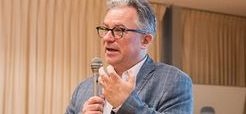
Austen Ivereigh, the UK-based journalist and papal biographer, addressed Melbourne clergy this week on Pope Francis’ pontificate and the nature of authentic renewal in the life of the Church.
Extract from Austen Ivereigh, CathNews, Melbourne Catholic, 29 October 2021
In the online talk, Mr Ivereigh, who wrote The Great Reformer: Francis and the Making of a Radical Pope, explained what he thinks is the interpretive key to understand Pope Francis’ vision and the kinds of changes he wants to see in the Church. This “key” is the Aparecida Document, a 2007 document of the fifth assembly of the Episcopal Council of Latin American Bishops. The then-Cardinal Jorge Bergoglio was chosen to lead the committee that would draft the assembly’s final document, which was seen as a “roadmap” usable for the entire Church. “It has a very brilliant analysis, I think, of contemporary modernity,” Mr Ivereigh said. The document laid out a vision in which Christ was the heart of culture. It said that “Christians must start over from Christ, from contemplation of Him who has revealed to us in his mystery, the complete fulfilment of the human vocation and its meaning,” so that in Jesus “culture can again find its centre and depth”. The question then becomes: If the Church needs to change in response to her own unwitting secularisation, how should the Church change? Is there a path of authentic change, as opposed to superficial and damaging change? It is to this question that Mr Ivereigh dedicated the second half of his talk. “Structural changes can turn out to be superficial or even damaging if they don’t reflect the deeper cultural change,” he said. “The Church has to change according to the power that the Church has been given, and the power the Church has been given is fundamentally the Holy Spirit.”.....(more). Photo Austen Ivereigh, Parramatta Diocese, CathNews 20211029
Extract from John Lavenburg, Crux, 28 October 2021
NEW YORK – When Joe Biden and Pope Francis meet on Friday, some U.S. immigration advocates hope the pontiff can plant seeds for change to U.S. immigration policy. Biden campaigned on promises of immigration reform through both executive and legislative action, but nine months into his presidency little change has happened. U.S. Catholic bishops and advocates have consistently called for two executive actions –the termination of Title 42 and the Remain in Mexico policy. Earlier this week Bishop Mark Seitz of El Paso made the latest plea against the Remain in Mexico policy telling the Catholic Legal Immigration Network that it “causes needless suffering for those forced to flee who have come to our doorstep in need of protection.” The policy forces asylum-seekers at the U.S.-Mexico border to wait in Mexico until their case is decided. Biden suspended the policy early in his presidential term. The U.S. Supreme Court, however, recently ordered the Biden administration to reinstate the policy, which the U.S. Department of Homeland Security said it will begin to enforce in November. Title 42 is a border policy that allows the immediate expulsion of migrants and limits their right to seek asylum on public health grounds. Biden hasn’t wavered on its use despite his promise to terminate it. At the end of September, more than 150 Catholic organizations renewed the call for the policy to end, writing to Biden that it “fails to respect the dignity of migrants and refugees and honor God’s image in every human person.” The final Fiscal Year 2021 statistics released by U.S. Customs and Border Protection that were last updated on Oct. 25 show a total of 1.04 million expulsions under Title 42...(more)

Extract from Elise Ann Allen, Snr Correspondent, Crux, 28 October 2021
ROME – On Wednesday the Vatican announced Pope Francis’s intention to visit Canada in a bid to reconcile with indigenous peoples. In an Oct. 27 communique, the Vatican said, “the Canadian Conference of Catholic Bishops has invited the Holy Father to make an apostolic journey to Canada, also in the context of the long-standing pastoral process of reconciliation with indigenous peoples.” “His Holiness has indicated his willingness to visit the country on a date to be settled in due course,” the statement said, but offered no further details. While any papal trip is significant in its own right, a visit to Canada by the leader of the world’s 1.3 billion Catholics would hold monumental symbolic value in light of the Catholic Church’s recent troubles over its past treatment of indigenous peoples. For years, the Church has faced pressure over its role in Canada’s residential school program for indigenous children, but this pressure turned to outrage over the summer after the remains of 215 children were discovered on the grounds of the Indian Residential School in Kamloops at the end of May. Founded in 1890, the Kamloops school at one point was Canada’s largest indigenous boarding school and was run by the Catholic Church between 1890 and 1969, when the Canadian government took it over as a day school until its closure in 1978. At the time when residential schools were still operational in Canada, nearly three-quarters were run by Catholic missionary congregations with the aim of assimilating indigenous children to Canadian culture. Over the years, these schools gained an infamous reputation as survivors began telling stories of physical and sexual abuse, as well as beatings or other strict corporal punishments when children spoke their native language. After the discovery at Kamloops, searches were made at other schools, unearthing hundreds more bodies.....(more) Photo: Kamloops, British Columbia, children's remains former residential school Ontario Adrian Wyld The Canadian Press via AP, Crux 20211028

Award-winning Catholic ethicist argues for an end to secrecy inside the Church, points to commission on the female diaconate.
Limited extract from Marie-Jo Thiel, France, Subscription journal La Croix International, 25 October 2021
Sexual abuse is rooted in abuse of power, which is very often the first step. While abuse of power can take many forms, many abusers rely on the excessive and, let's say it, clericalist use of secrecy.
For decades many Church bodies, including the Pontifical Commission for the Protection of Minors, have repeatedly called for removing the pontifical secret. On December 17, 2019, Pope Francis finally lifted it for cases of sexual violence and abuse of minors committed by members of the clergy. Nevertheless, this is just one step. A culture of secrecy still exists in the Church, for reasons not always justified and or even healthy. This culture continues to contribute to authoritarianism, clericalism and patriarchalism – all attitudes deeply disrespectful of equality among the baptized. We can cite three examples. Crimen sollicitationis, a text that remained secret for more than a century. We know today, without yet knowing all the twists and turns, the journey of the text Crimen sollicitationis, aimed at setting up procedures to respond to the case where a cleric solicits sexual favors in the context of confession. The issue was explosive. The Church first addressed it in 1741 and included it in the 1917 Code of Canon Law. But the text explaining the procedure to be followed in case of the "crime of solicitation", which gave its name to this document, was published for the first time in 1922. Yet it remained secret. We only learned of its existence in 1962! This document contained practical procedures to follow when dealing with an abusive cleric. But it was never officially published. It was sent only to a few episcopal conferences. Which conferences and why?....source Photo: Vatican Apostolic Archives M Migliorato CPP CIRIC La Croix Int 2021025
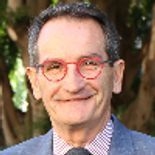
Extract from Sullivan, Eureka Street, 25 October 2021
The First Assembly of the Fifth Plenary Council held few surprises. The program made sure of it. Proceedings were carefully choreographed and the agenda was deliberately anodyne. It took several days before participants found their feet. The ‘deep listening’ process of scripture reflection and sharing in small groups did engender a spirit of collegiality. At the same time, it constrained free flowing discussion and overwhelmed any effective canvassing of the issues confronting the Church. The upshot was a week devoid of strategic focus. Given that so much time was spent on prayerful reflection, not enough was available to the task at hand. The Catholic community had supplied 17,500 submissions in an initial consultation phase. Yet the Plenary was not presented with any report on what those submissions contained, nor was it presented with any draft resolutions from the submissions. It can only be assumed that the Bishops Steering Group deemed the submissions to be of insignificant value to the Assembly. The expert theologians, scripture scholars, canonists and public policy advisors were kept at a distance. It was if the participants were meant to start from scratch. What did emerge was the diversity of views over the role and purpose of the Church. Again, no surprise there! Though more important was the lack of clarity over the actual starting point for the conversation. Participants were constantly reminded that Pope Francis was calling for a Church motivated by a ‘missionary impulse’. It seemed fair to assume therefore that the task was to imagine what that looks like for the Church now and into the future. Yet the daily feedback from the working groups roamed far and wide from personal devotional practices all the way to cutting edge pastoral outreach. Again, no surprises when you give Catholics free rein! The situation would be less distressing if there had been an overt recognition of the crisis the Church faces. A crisis that is both of its own making and one that prompts questions about religious belief in our world today. This crisis needs to be addressed by the Plenary Council in two fundamental areas: internal organisation and pastoral disposition. On the first, the organisational life of the Church has already been the subject of intense scrutiny by the Royal Commission into Institutional Responses to Child Sexual Abuse. One of the seventeen volumes of the Final Report dealt specifically with the Catholic Church. It contained clear recommendations for governance and culture. Following this, the bishops and religious leaders commissioned a two-year study that produced The Light From the Southern Cross report into governance and cultural issues. These two reports outline a similar roadmap for change. But the elephant in the room is the authority of bishops....(more). Photo: Francis Sullivan, Eureka Street, 25 October 2021

Extracts from CathNews NZ, 21 October 2021
Lawyers for New Zealand Churches and a Catholic bishop acting in a private capacity tried to push back on the scope of the Royal Commission of Inquiry into abuse in care, says the Royal Commission chair. The move infuriated a survivors’ group so much it has pulled out. This is a “final blow” to an ineffectual and re-traumatising inquiry, says the Network for Survivors of Abuse in Faith-based Institutions. It is advising people not to give evidence. The Commission says it won’t change its very wide scope – but the damage has been done, some survivors say. It is currently gathering evidence ahead of a hearing into churches, including the Catholic, Anglican and Salvation Army. The resistance the Commission has faced was revealed by the chair Judge Coral Shaw (pictured) to the survivors’ network. She told them “Tenacious lawyers acting for the churches are constantly bringing up issues and trying to bat them back to us, and starting to second guess.” After RNZ repeatedly asked which churches the Commission was referring to, it mentioned lawyers working for the Jehovah’s Witnesses and an unnamed Catholic bishop “acting in an individual capacity”. The pushback was focused on the breadth of the inquiry and its request for information about pastoral care where abuse may have happened. This includes counselling, training or mentoring involving children and young people. “This is one of the pushbacks,” Shaw told the survivors’ network. “They start to ask questions about the ambit of it.” Ultimately, only two submissions were made, and neither called for a change in scope. The network would seek accountability even if that was at times “uncomfortable for some institutions”. The survivors’ network says the Commission should have rejected pushback immediately.........About 2500 survivors have registered so far, many thousands fewer than expected by this time. The survivors’ network says unlike the Australian inquiry into abuse, this one has not produced the required research and case studies.....(More). Photo: NZ Royal Commission Chair

Extracts from CathNews NZ, 21 October 2021
A new, extensive multifaith study predicts that 30% of US religious congregations won’t survive the next 20 years due to a dramatic reduction in attendance. A survey of 15,278 congregations in 80 Christian, Muslim, Jewish and Ba’hai denominations found that large congregations continued to grow. In contrast, smaller congregations shrank in 2020, according to the Hartford Institute for Religion Research study. "When you consider that many of those smaller congregations are rapidly ageing, unless something dramatic happens that brings young people into them, it’s likely 30% of them won’t survive the next 20 years,” said Hartford Institute Director Scott Thumma, who led the study. Mr Thumma said the pandemic was likely to have accelerated the ongoing trends identified in the study. “The church itself is getting smaller and smaller. The average church is attended by 65 people, which is enough to fund a full-time minister and influence society and the community. It’s not money,” he said. Hartford received a $ 5.3 million Lily Fund grant to study the impact of a pandemic on the congregation over the next five years. Thumma pointed out various factors in the future, such as the ageing of church members nationwide. The average age of members is in their 60s. COVID-19 also reduces volunteer opportunities and limits direct attendance. Hartford’s data complement religious landscape surveys that have been conducted by the Pew Forum. That survey shows US religious observance and affiliation has been steadily declining with each new generation. Pew asks individual adults to report their religious identity and participation. In contrast, the Hartford study asks congregations themselves to distribute a questionnaire and report their average weekly attendance. Mr Thumma said the Hartford method offers a broader picture of institutional decline across all US religious congregations. “The largest congregations contain [the] most attendees,” he said. “The majority of congregations are small, poor in technology and have relatively few people in them.”...(more). Photo: No Masses now CathNews NZ 20211021
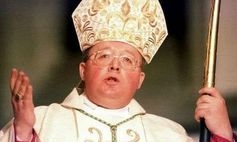
Traditionalist bishop in Liechtenstein rebuffs the pope and the synodal process
The controversial Archbishop Wolfgang Haas says his "small" diocese doesn't need the pope's so-called "synodal process"
Limited Extract from subscriptional journal La Croix International, 21 October 2021
Archbishop Wolfgang Haas, a traditionalist prelate who heads the Principality of Lichtenstein's sole diocese, has refused to implement the synodal process that Pope Francis has instructed to be carried out in all local Churches around the globe. All Catholic dioceses were expected to open a local consultation last Sunday to prepare for the Synod of Bishops' next general assembly on synodality. The aim is to include the voices of all the baptized and promote a "more open" Church. But Archbishop Haas, who is notorious for taking controversial positions, announced last Friday that the Archdiocese of Vaduz – which is the only Catholic circumscription or diocese in Lichtenstein – would not be participating in the exercise. "A so-called 'synodal process'". "The pope has launched a so-called 'synodal process'," Haas said mockingly in a statement posted on the archdiocese's website. The 73-year-old archbishop claimed the process risked creating an "ideological division" in the Church. He also said synodal reflection was unnecessary in the archdiocese. German-speaking Lichtenstein is squeezed between Austria and Switzerland and is Europe's fourth-smallest country. According to the latest Vatican statistics, roughly 74% of the principality's 38,000 inhabitants are Catholic. Archbishop Haas said the synodal procedure would be "complex and even somewhat complicated" for such a "small" diocese that only has 10 parishes......(more). Photo: Archbishop Wolfgang Haas, REUTERS, La Croix International, 20211021
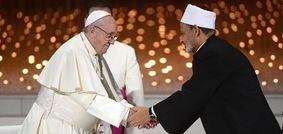
Edited Extract from Andrea Tornielli, Catholic Outlook Diocese of Parramatta, Vatican News, 21 October 2021
The Grand Imam of Al-Azhar speaks to Vatican Media about his relationship with Pope Francis: “From the first minute of our meeting I had confirmation that he is a man of peace and humanity. The encyclical is an appeal to create a true fraternity where there is no room for discrimination on the basis of differences of religion, race, gender, or other forms of intolerance.” “Each one of us has discovered a great spiritual and thoughtful attunement to the crises that afflict contemporary man…”. The Grand Imam of Al-Azhar, Prof. Ahmad Muhammad Al-Tayeb, during his days in Rome to participate at some important events alongside Pope Francis and other religious leaders, visited the studios of Vatican Radio – Vatican News and spoke about his relationship with Pope Francis, one year after the publication of the Encyclical Fratelli tutti. The Grand Imam recounted that “after the election of dear brother Pope Francis, Al-Azhar took the initiative to congratulate him, and we received a beautiful response from Pope Francis.” He noted that it was a response that encouraged us to renew the relationship, and so, he decided to visit the Pope in the Vatican in May 2016. During this visit, he said, “each of us discovered a great spiritual and thoughtful attunement towards the crises that afflict contemporary man, and in a special way towards the poor, orphans, the sick, widows, victims of wars and the homeless.” “This attunement between the Pope and I,” Al-Tayeb continued, “can offer much to alleviate these crises. From that moment, there was no hesitation. I personally did not hesitate to extend my hand. From the first minute of our meeting, I had confirmation that he is a man of peace and humanity par excellence.” He further noted that things went well and that in just three years they had had six summits; during the fifth of these summits, they signed the Document on Human Fraternity........Regarding the Encyclical Fratelli tutti published a year ago, Prof. Al-Tayeb noted that it “is definitely of huge importance, especially in this time, for both Muslims and non-Muslims.” He added that the encyclical fits into the framework of their meetings and is inspired by them, noting also that the Pope himself mentions this in the preface. He said...... (it) is, in short, “an appeal to apply the moral principles of religions to create a true fraternity where there is no room for discrimination on the basis of differences of religion, confession, race, gender, or other forms of intolerance.”.....(more). Photo:Pope Francis Grand Imam of Al-Azhar, Ahmed el-Tayyeb ANSA Vatican Catholic Outlook 20211021
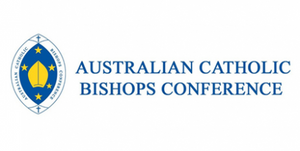
Bishops Conference publishes inaugural annual report
Extract from CathNews, ACBC Media Blog, 21 October 2021
The
Australian Catholic Bishops Conference has published its inaugural
annual report, outlining the key activities undertaken by the various
parts of the Bishops Conference. The idea of publishing an annual
report emerged from a desire to inform the Catholic community and wider
society about how the Bishops Conference supports the mission of the
Church in Australia. It also responds to the call for greater
transparency within Catholic organisations. The first annual report
covers work during 2020. Bishops Conference president Archbishop
Mark Coleridge, in the report’s foreword, said it reveals the breadth of
the activities of the Conference. “If you read this report with
the eyes of faith, you will see that the bishops, under the influence of
the Holy Spirit, are grappling with a wide range of issues and problems
at a time when the Church in this country cannot simply take the future
for granted,” he wrote. Archbishop Coleridge said brief reports
after its biannual plenary meeting gave “the smallest tip of the
iceberg” of what the Bishops Conference does. “What you find in
these pages shows more of the iceberg, but a great deal still remains
below the surface,” he wrote........(more). Image: ACBC

Extract from Massimo Faggioli, Catholic Outlook Diocese of Parramatta, Concillium, 20 October 2021
The CIASE commission’s report on sexual abuse in the Catholic Church in France between 1950 and 2020 has been released on October 5, 2021, and will have effects, at the moment difficult to be predicted, on the ecclesial discourse not only in France, but also at a global level. The commission’s chairman, Jean-Marc Sauvè, stated during the press conference that “we need to get rid of the idea that sexual violence in the Catholic Church has been completely eradicated and that the problem is behind us: no, the problem remains.” The report also mentions that sexual violence is “significantly” higher in church settings than in other social circles such as schools or summer camps, with the exception of the family, which is the place where the risk of sexual abuse remains the highest. Thus, there is still an urgent problem of prevention and repression of the phenomenon. But the CIASE report is also a document that raises serious theological questions for theology: they will have to be addressed by a theology that has among its audiences not only the academy, but also the church and the public sphere. This brief article proposes, without any pretense of being exhaustive or definitive, to begin to make a first list of issues. We need to remember the fact that both the German “Synodal Path” and the Plenary Council in Australia are incomprehensible when considered outside the context, in this last decade, of national inquiries into the abuse crisis. Theology needs to question and interrogate whether or not the link between the institutional and theological models adopted at the universal and local levels for the “Synodal Way 2021-2023” on the one side and the cataclysmic abuse crisis on the other side is appropriate. A key question that the CIASE report raises is whether mechanisms for representing the people of God, including victims, and the abuse crisis have adequate space in this synodal process.....(More) Photo:Jean-Mark Sauve,president CIASE, AFP or licensors Vatican News, Catholic Outlook 20211020
Limited extract of Opinion Piece, Michael Sean Winters, subscription journal La Croix International, 13 October 2021
To open the synod, Pope Francis delivered a brief address Oct. 9 in the Synod Hall, to give some indication of how he envisioned the synodal process. The Holy Father said: "The Synod has three key words: communion, participation and mission. Communion and mission are theological terms describing the mystery of the Church, which we do well to keep in mind. The Second Vatican Council clearly taught that communion expresses the very nature of the Church, while pointing out that the Church has received "the mission of proclaiming and establishing among all peoples the kingdom of Christ and of God, and is, on earth, the seed and beginning of that kingdom" (Lumen Gentium, 5). The pope compared this relationship between communion and mission to the life of the Trinity, with the mystery of its communion of persons ad intra and its mission to create, redeem and sanctify ad extra. Also significant is the reference to the Second Vatican Council's Dogmatic Constitution on the Church, Lumen Gentium. Earlier this month, I encouraged Catholics to prepare for the synodal process by rereading the four great constitutions of Vatican II and, as luck would have it, Lumen Gentium is the first one I reread. It remains fascinating in every part, but for purposes of the synod, the most important thread may be the call for the church to be a leaven in the world. And that thread runs through the text: "From this source the Church, equipped with the gifts of its Founder and faithfully guarding His precepts of charity, humility and self-sacrifice, receives the mission to proclaim and to spread among all peoples the Kingdom of Christ and of God and to be, on earth, the initial budding forth of that kingdom." And: "The laity, by their very vocation, seek the kingdom of God by engaging in temporal affairs and by ordering them according to the plan of God. They live in the world, that is, in each and in all of the secular professions and occupations. They live in the ordinary circumstances of family and social life, from which the very web of their existence is woven. They are called there by God that by exercising their proper function and led by the spirit of the Gospel they may work for the sanctification of the world from within as a leaven." And: "The faithful, therefore, must learn the deepest meaning and the value of all creation, as well as its role in the harmonious praise of God. They must assist each other to live holier lives even in their daily occupations. In this way the world may be permeated by the spirit of Christ and it may more effectively fulfill its purpose in justice, charity and peace. And: "Rising from the dead He sent His life-giving Spirit upon His disciples and through Him has established His Body which is the Church as the universal sacrament of salvation. You get the idea. We are not supposed to keep Christ locked up inside the church but are supposed to bring him into the highways and byways of life in our time. "Keep us from becoming a 'museum church,' beautiful but mute, with much past and little future," the pope said in his homily at the Mass to officially open the synodal process on Sunday.....(more). Photo: Pope Francis listens CNS Paul Haring La Croix International,
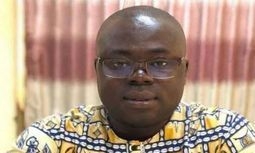
Interview with prominent Catholic lay leader in the West African nation of Burkina Faso
Limited extract from Kamboissoa Samboé, subscription journal La Croix International, 13 October 2021
Burkina Faso is a majority Muslim country in West Africa with an estimated 60.5% of its population of just over 21.5 million professing the Islamic faith. But the small Catholic community of just over three-million believers is vibrant. And prominent lay leaders in the Church here are hopeful that Pope Francis' efforts to implement synodality will help enhance the faith, mission and responsibility of all Catholics. One of these leaders is Yacinthe Sam, former secretary general of the National Council of the Laity in Burkina Faso. In this interview with La Croix Africa's Kamboissoa Samboé, he speaks about the preparatory phase of the Synod of Bishops' upcoming assembly on synodality, which the pope officially opened last weekend at the Vatican. La Croix Africa: As a layperson, what state of mind are you in while preparing for the so-called Synod on synodality? Yacinthe Sam: I feel confidence and hope. Confidence, because the progress of the Church today shows us that the mission of evangelization can only succeed if we are part of a dynamic of communion and synodality. This is what the theme of the synod suggests: "For a synodal Church: communion, participation and mission". Hope because the Synod on synodality represents a call to renewal for the Church and all its members (priests, religious and laity) and consequently the hope for a change of paradigms for a new evangelization. What issues related to the laity should the Church raise at the Synod assembly? In my opinion, there are two essential issues: training and collaboration. On the issue of training, when we consider the context of the Church in Africa, the observation is simple: the laity do not know enough about their identity and even less about their place and role in the Church and in society. For many lay people, the Church remains a pyramidal Church where everything must come from the hierarchy. The laity therefore remains a "Sunday Catholic" and does not necessarily feel co-responsible and co-participating in the life of their Church. There is therefore an important need for training of the laity on their identity and their mission in the Church as well as in society. As for collaboration, we must note with regret that our Church is still strongly clerical. The Church is first and foremost the clergy; the laity often seem to be relegated to the background. There is therefore a need to work towards a greater and frank collaboration between all the faithful of Christ (priests, religious, laity) for the common mission of evangelization. In this sense, it would not be incongruous, for example, to reflect on a greater involvement of the lay faithful in pastoral work and decision-making within the Church!...(more). Photo: Yacinthe Sam, Photo Kamboissoa Samboe LCA La Croix Int 20211013

Extract from Michael Kenny, Editor in Chief, The Catholic Weekly, 10 October 2021
Archbishop Anthony Fisher OP has urged the Members of the 5th Plenary Council of the Catholic Church in Australia to bring the patrimony of the Church across time and space to their discussions, be wary of the fashions of the age and read the signs of the times through the spectacles of faith and reason, otherwise this Plenary Council and any other is for nought. Archbishop Fisher was speaking at a Closing Mass for Sydney Members to mark the end of the week-long First Assembly of the Plenary Council at St Mary’s Cathedral on Sunday. The closing Mass for the First Assembly was held in Brisbane. The Second Assembly will take part, COVID-permitting, in Sydney from 4-9 July 2022. 278 Plenary Council members have participated in the First Assembly largely online, with a small number of dioceses able to bring members together if COVID-19 restrictions allowed. Small numbers of local bishops, vicars and two lay members were able to attend the Closing Mass in Sydney under public health restrictions. In his homily at the Mass, Archbishop Fisher emphasised that previous Plenary Councils in Australia, the most recent having taken place in 1937, were conscious that theirs was one in a long procession of church synods, all charged with proclaiming the apostolic faith that first came to this land a century and a half before them. “They were part of something that stretched not just across time, but also space: the universal Church represented by the presiding papal legate, by the newish Code of Canon Law they were applying locally, and by the fact Rome had to approve the Council’s 655 decrees”, Archbishop Fisher said. “They invoked the help of the Holy Spirit, declaring their reliance upon Him alone, as they shaped pastoral responses to the issues of the day”. Archbishop Fisher emphasised that while Plenary Councils are a means to help renew the Church, Members must respond with holy rather than worldly wisdom to the important responsibilities entrusted to them. “It’s not a parliament making decrees at will, as if everything were ‘on the table’ or ‘up for grabs’. It’s a very pastoral strategy of gathering Church leaders and some others, for prayer and discernment, to increase faith, revitalise morals, promote discipline and plan common pastoral action”....(more). Photo: Archbishop Fisher St Mary’s Cathedral 10 October Plenary Council Giovanni Portelli Catholic weekly 20211010
Extract from Catholic Outlook, Parramatta Diocese, 9 October 2021
Today was the final day of the Fifth Plenary Council of Australia, when 280 people across the country came together online for a week of prayer, discernment, and dialogue. The day began with Mass celebrated by Melbourne Archbishop Peter A Comensoli, at St Patrick’s Cathedral, Melbourne. Mass was followed by the final livestreamed reports from the Members of the Plenary Council on the topics they had been discussing in small groups throughout the week. An impassioned call for “a prayer for the future of our common home, a Gospel for the home of our future generations” was made during the final reporting back on small group discernment by Plenary Council members today. The presenters’ comprehensive reports on the 16 agenda questions included proposals and requests for further investigation and research to create a more missionary, Christ-centred Church in Australia. In presenting her group’s proposals, Catherine McAleer was emotional as she concluded her summary of the question on responding to the call to ecological conversion. She said the group sought acknowledgement of the “primacy of ecological conversion; personal and communal” and asked for the “explicit adoption” of the Pope Francis’ Laudato Si’ Action Plan as the vehicle for that conversion to a Church openly committed to God’s creation. Shaun De Zylva said his group discussed ways of creating a culture of conversion for renewal and mission through truth-telling, story-telling and proclaiming the Gospel for renewal through personal and communal conversion. Specific proposals included parishes establishing small groups that meet for an annual synod and that each diocese should have a synod at least once every three years; studying and learning from the synodal journey that resulted in the Uluru Statement of the Heart; encouraging small ecclesial communities (home/family groups) with learnings from the early Church; and establishing forums for open dialogue and discernment especially with those groups who feel excluded in the Church. Sabrina-Ann Stevens reiterated the need to determine an appropriate process to support the Uluru Statement from the Heart and said her group believed a First Nations Voice enshrined in the Constitution was “important for our nation”. Her group also recommended that the gifts of First Nations Catholics be fully embraced through the inclusion of Indigenous leaders as partners in decision-making at every level of Church – parishes, dioceses, Catholic education, organisations and agencies.........(more)
Extract from Inés San Martín, Rome Burewau Chief, Crux, 9 October 2021
ROME – Formally opening his much-ballyhooed Synod of Bishops on Synodality Saturday, Pope Francis expressed his desire that it be an experience in which everyone in the church participates rather than a “elitist” exercise. The pontiff also prayed for the Holy Spirit to guide the discussions, thus preventing the Catholic Church “from becoming a ‘museum’, beautiful but mute, with much past and little future.” Visibly deviating from his prepared remarks, the pope noted that the Synod is neither a parliament nor an opinion poll. The Synod is an Ecclesial moment, and the protagonist is the Holy Spirit. Without the Spirit, there will not be a Synod,” he said, calling for unity, above all among the bishops. Francis also invited those present to acknowledge the frustration and impatience felt by many pastoral workers, “members of diocesan and parish consultative bodies and women, who frequently remain on the fringes,” and urged dialogue between priests and laity, saying that he underlined this because sometimes, priests become “elitists” becoming “the patrons of the barracks.” The pope’s words came Oct. 9, as he was opening the Synod of Bishops titled, “For a Synodal Church: communion, participation and mission.” In a speech in which he mentioned both opportunities and risks this process may entail, Francis listed three of each. He began by saying this is an opportunity to move structurally towards a synodal Church, “An open square where all can feel at home and participate.” The Synod, the pontiff said, offers an opportunity for the Church to become “a listening” one, that sets routine aside and offers a break from routine pastoral concerns: “To listen to the Spirit in adoration and prayer, to listen to our brothers and sisters speak of their hopes and of the crises of faith present in different parts of the world, of the need for a renewed pastoral life and of the signals we are receiving from those on the ground.” A third opportunity is the Church becoming one of “closeness,” not only in words but presence in society and the world, immersed in modern-day problems, “bandaging wounds and healing broken hearts with the balm of God.” On the opposite end, Francis said the Synod also has a series of risks: Formalism, intellectualism and complacency............he said, there’s a need to change the “overly vertical, distorted and partial visions of the Church, the priestly ministry, the role of the laity, ecclesial responsibilities, roles of governance and so forth.”...(more)
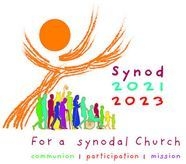
As Pope Francis prepares to launch the XVI Ordinary General Assembly of the Synod of Bishops, an Australian lay woman assisting the process says the Church in Australia has been a key supporter of the Synod.
Extract from CathNews, ACBC Media Blog, 8 October 2021
Susan Pascoe has held a number of senior roles in the Church and in government in Australia, including as head of the Catholic Education Commission of Victoria and the Australian Charities and Not-for-profits Commission. Earlier this year she was appointed to one of four commissions supporting the work of the Synod, and she has travelled to Rome for the global launch this weekend. Ms Pascoe said with the Synod’s theme as “For a Synodal Church: Communion, Participation and Mission”, Australia’s Fifth Plenary Council of Australia is seen as something of a model. “The emphasis on involving as many voices as possible through the Plenary Council submission writing process, the integration of prayer and spirituality as foundational to the listening and discernment phase, and the live streaming of the first assembly all witness to a process of the People of God in Australia journeying together, which is central to synodality,” she said. In practical ways, key figures in the Plenary Council process have also offered advice to the Synod of Bishops secretariat and its commissions on how the Church in Australia prepared for and is now conducting the Council. Pope Francis will celebrate Mass on October 10 to formally launch the global process, with dioceses set to have local launches the following weekend. A period of local consultation will take place over several months, which will then be gathered nationally and later discussed within regions of the world. The Synod of Bishops will culminate in a gathering at the Vatican in October 2023. Fr Ormond Rush, associate professor of religion and theology at Australian Catholic University, was earlier this year announced as a member of the theology commission. He is currently in Brisbane serving as an adviser to the Plenary Council’s first general assembly......(More) Find out more about the Synod of Bishops and the Australian consultations at: www.catholic.org.au/synodalchurch Photo: Synod of Bishops 21-23. ACBC

Contemplating woundedness, the marginalised
CathNews, ACBC, Thursday 7 October 2021
Today’s Plenary Council sessions will take on a different feel, as members spend extra time offline, praying with and reflecting on questions about seeing through the eyes of those who have been abused and reaching those on the peripheries. The agenda for the Plenary Council poses 16 questions across six themes, with members called to “develop concrete proposals to create a more missionary, Christ-centred Church in Australia at this time”. Fourteen of the 16 questions are being discerned concurrently during the week by 10 small working groups. Today, the members will consider two particular questions: How might we heal the wounds of abuse, coming to see through the eyes of those who have been abused? How might the Church in Australia meet the needs of the most vulnerable, go to the peripheries, be missionary in places that may be overlooked or left behind in contemporary Australia? How might we partner with others (Christians, people of other faiths, neighbourhood community groups, government) to do this? Br Peter Carroll FMS, the provincial leader of the Marist Brothers in Australia and a Plenary Council member, said while the Council “is about mapping out a path for the future, we can’t ignore the tragedies of the past”. “We must come to terms with our sinfulness and reconcile our future with our past,” he said. Br Peter said he has urged the Plenary Council membership to consider how a public response will be made to victims and survivors during the Council journey, which runs until July 2022....(more). Image: Plenary Council.
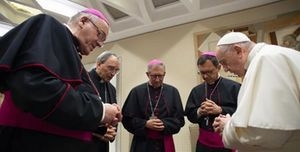
Extract from CathNews, 7 October 2021
Pope Francis yesterday said the report estimating that more than 200,000 children were abused in the Church in France over the past 70 years is “a moment of shame”. Source: CNA. “To the victims, I wish to express my sadness and my pain for the traumas they have endured and my shame, our shame, my shame that for so long the Church has been incapable of putting this at the center of its concerns, assuring them of my prayers,” he said during his weekly general audience at the Vatican. The Pope’s comments came a day after the Independent Commission on Sexual Abuse in the Church (CIASE) published a nearly 2,500-page final report estimating that 216,000 children were abused by priests, deacons, monks, or nuns in France from 1950 to 2020. The study also said that “more than a third of sexual assaults within the Catholic Church were committed, not by clergy or monks, but by lay people.” Before entering the Paul VI Hall for his general audience, Pope Francis took a moment to pray with four French bishops for the victims of sexual abuse. “I encourage the bishops and religious superiors to continue to do everything possible so that similar tragedies might not be repeated,” Pope Francis said at the general audience. Cardinal Seán O’Malley, the president of the Pontifical Commission for the Protection of Minors, also issued a statement yesterday, calling the report an “indictment of the failures of leadership in the Church.”.....(more). Photo: Pope Francis prays CSA with French bishops CSA CNA Vatican Media CathNews 20211007

Extract from Michael Sean Winters, National Catholic Reporter, 6 Oct 2021
Every once in a while, the algorithmic gods decide to have a little fun. And so last week I received in the mail a "Catholic Opinion Research Survey" from the right-wing group CatholicVote.org. The "survey" exhibits nearly everything that is wrong about the current state of the church in the U.S. First, it is not really a survey but an elaborate push poll. Push polls are a form of negative advertising that have been condemned by the American Association for Public Opinion Research as "an insidious form of negative campaigning, disguised as a political poll. 'Push polls' are not surveys at all, but rather unethical political telemarketing — telephone calls disguised as research that aim to persuade large numbers of voters and affect election outcomes, rather than measure opinions." So, for example, when this "survey" from CatholicVote asks, "Why do you think leaders of the national Democrat Party, including Joe Biden, keep omitting God when quoting our nations official documents?", it is not really your opinion that they are after. They are trying to smear the president, who often misspeaks, as anti-God. They also, unintentionally, impugn the patriotism of the Founding Fathers who omitted God from the Constitution. Interestingly, the group also push polls on an ecclesial issue. "Do you think politicians who promote these radical Left policies that directly violate the moral teachings of the Catholic Church cause confusion and division, and that they should not present themselves for Holy Communion?" Sorry, but in the Catholic Church, we do not decide such complicated matters by taking a poll....(more) Photo: Survey_dreamstime_Dreamstime Weerapat Wattanapichayakul NCR 20211006

The second day of the Fifth Plenary Council of Australia covered a broad range of thoughts and topics
Limited extract from La Croix International staff, Australia, subscription journal La Croix International, 5 October 2021
The first "spiritual conversations" of the Fifth Plenary Council of Australia covered a broad range of thoughts and topics from clericalism, to the role of women, to new ways of presenting a missionary Church. The process for communal discernment by the 278 members during the Plenary Council's two assemblies follows the practice of "spiritual conversations". Ten groups of members are praying with and reflecting on 16 questions across six themes: Conversion, Prayers, Formation, Structures, Governance and Institutions. During the October 5 plenary of the second day of the Council a representative of each of the 10 groups provided a summary of the previous afternoon's prayer and discussion. "A common theme emerging from those small group sessions was the importance of listening to and accompanying people, including those on the peripheries and at all levels of the Church," according to a press release from the Australian Catholic Bishops Conference. There was also an emphasis on hearing the voices of "churches" – noting the diversity of liturgy and traditions in the Eastern Rites and migrant communities. One group spoke of the differences between rural and metropolitan parishes and another pointed out that the Council agenda needed to address the issue of "ecumenical and interfaith dialogue and cooperation". A group exploring Indigenous issues expressed the belief that the Church would be "enlivened" with the full participation of First Nations peoples. There was a call for Aboriginal and Torres Strait Islander people to be able to minister to their communities and to each other. Another group also talked about the need for "imagination" in how to present a missionary Church and suggested drawing on existing expertise on governance and mission, including from Catholic social service and health agencies. The question of formation was considered across a number of groups and seen as an issue for not just the ordained or Church leaders, but should be "normalised" as a culture within the Church. One group suggested the experience of married deacons and priests in the Eastern Rites had "much to offer in terms of clerical formation, particularly the role that wives can play in formation". During a discussion on clericalism, one group asked how to prevent a "bad culture" of clericalism. Parishes were seen as a place where the laity could be empowered to live out their baptismal calling as missionary disciples, with faith formation being an important part of this. The group on governance reflected on "How do we as a Church walk side by side, women, men, lay and ordained, priest and bishop towards the road to Christ?". The discussion included why women didn't have a significant role in governance. While many members expressed hope and excitement about the assembly on the first full day of the first general assembly, others were "anxious" and had a sense of urgency for change, the press release said.....(source). Image:Plenary Council begins communal discernment La Croix International 20211005

Edited Extract from CCSV 22 September 2021, published here 29 September 2021
The mission of Catholic Social Services Victoria (CSSV) is to assist the Catholic Church in Victoria to fulfil the gospel imperatives to stand with and serve the poor, disadvantaged and marginalised; and work for a just, equitable and compassionate society. CSSV is auspiced by the Archbishop of Melbourne and Bishops of Sale, Sandhurst and Ballarat. CSSV includes 45 member organisations comprising 7000 staff, 17,000 volunteers and serving more than 200,000 people in need in Victoria every year. CSSV is guided by the example of Jesus and the gospel principles enshrined in Catholic Social Teaching: The Dignity of the Human Person and Preference for the Poor; The Common Good; Solidarity; Subsidiarity. Catholic social services are deeply embedded both in the Australian community and in the life of the Church. CSSV encourages people working within the agencies to embrace the mission of Christ, and (plp)using members experience, contribute to the emerging directions of the Church. Connection and dialogue with Bishops, clergy, religious and parish members is essential to fulfil the Church’s mission and to be part of the spirit of transformation. We, and all Church leaders, can look to the person and role of Saint Mary MacKillop for inspiration. CSSV encourages all agencies to continue engagement in the process of discerning the future of the Church in Australia. This will require a national consultative mechanism to continue the synodal work stimulated by this Plenary Council.....Complete Open Letter HERE
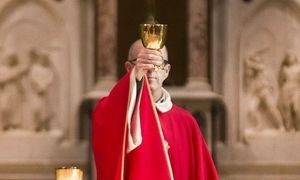
Extract from Opinion Piece, Paul Collins, The Age, 27 September 2021
Like it or not, Catholicism is still enormously influential in Australia. It is Australia’s largest non-government employer through its schools, hospitals and aged care with around 230,000 people working directly for the church. It also runs many voluntary organisations, like the Saint Vincent de Paul Society with some 20,700 members and 41,150 volunteers with a huge impact on social welfare. Despite this, Catholicism’s reputation has been effectively trashed in the media and wider community by the sexual abuse crisis and church leaders’ appalling, long-term failure to deal decisively with clerical abusers. The revelations of the royal commission reinforced the church’s toxic reputation. The result: people are abandoning Catholicism in droves. The percentage of self-confessed Catholics in the population has dropped from 27 per cent in 2001 to 22.6 per cent in the 2016 census. Of the 5.3 million Catholics in 2106, only 11.8 per cent attended Mass regularly. In an attempt to respond, Australia’s 46 bishops are gathering with 99 invited priests, 25 religious sisters and around 110 laypeople from across Australia in a Plenary Council in early October to try to sort out the church’s future. To prepare for the plenary, a nationwide consultation was held with Australian Catholics. The response was enormous: more than 222,000 people participated, with 17,457 written submissions from groups and individuals. Issues emerging from the consultation focused around clerical control, lack of leadership, accountability, marginalisation of laypeople in decision making, election of bishops, gender and sexual issues, ministry, especially that of women, married priests, the church’s role in a secular culture and relationships with the wider community. But that’s where democracy and consultation ended.....(Source). Photo: Catholic Numbers in decline, Simon O'Dwyer The Age 20210927
Extract from Carol Glatz, Catholic Weekly, 27 September 2021
Honest and open debate about different points of view in the Catholic Church are fundamental, but Catholics should not be demonising the individuals with those views, Cardinal George Pell said. Asked about the different polarised positions among Catholics that can be found online, he said that many of the issues being discussed are “very important, and I don’t think there can be any compromise on the fundamental issues of what is the apostolic tradition”. The church’s stance on issues should be clearly explained, but there is “a hierarchy of truths, not everything is equally important,” which means Catholics “should not be disagreeing violently over too much at all but certainly not over matters which are of less importance,” he said in an interview in Rome streamed live on 23 September and uploaded the next day by the Pontifical University of the Holy Cross. As Catholics try to choose among many sources and offerings online, what they should be looking for and contributing to “is regular courtesy, a regular commitment to the truth, to dialogue, debating, arguing about the issues” themselves and not attacking the people who hold a different point of view, said the cardinal, who is the former prefect of the Vatican Secretariat for the Economy and retired archbishop of Sydney. The interview was part of the university’s biennial “The Church Up Close” seminar offered to journalists who report on the Catholic Church. This year’s seminar was held online and focused on “Covering Catholicism in the Age of Francis”. Wide-ranging discussion The interview with Cardinal Pell covered a wide variety of topics, including Cardinal Pell’s experience in an Australian prison for 13 months on child sex abuse charges until he was cleared by a unanimous decision of the High Court in 2020 and the vital importance of due process for both victims and the accused. “Denouncing somebody in the press so they’ve got almost no chance of defending themselves is, I think, a violation of due process,” he said. “Everybody has a right to the truth, and in the long term it is the best protection for the victims too,” because any manifestly false accusation “poisons public opinion against the genuine victims,” he said. “We need to follow the commandments, we need to practice what Christ taught, if we did that there would have been no sexual abuse. The authorities would have faced up to the problem in truth,” he said. “What the church was doing in terms of muddle and cover-up 20 years ago was generally done in all of society — now that is not excusing it, but it is setting it in context,” he said.........(source)

Limited Extract from Mike Secombe, Subscription journal The Saturday Paper, 25 October 2021
The Archbishop of Sydney, Anthony Fisher, the man who replaced George Pell as leader of the conservatives in the Australian Catholic Church, began his homily during last Sunday’s Mass at St Mary’s Cathedral with a very pointed story from the gospels. It related to “bickering” between Christ’s disciples, not over “crucial questions of Christian doctrine, identity and mission” but over power. It was fuelled, the archbishop said, by “jealousy, ambition, the desire always to get one’s own way”. Fisher was talking days after Cardinal Pell left Sydney to return to Rome. The former Vatican treasurer had been in the country for several months, ahead of key reforms being discussed by the local church. In his homily, Fisher quoted Mark’s gospel on how Jesus taught his disciples the error of their ways: “If you really want to be first, put yourself last … Among the Gentiles the rulers lord it over them … but it must not be so among you. Whoever wishes to be great among you must be the servant …” The lesson, said Fisher, was this: “No more squabbling over power … For Christians, authority is about service not control.” There was no mistaking the point of the parable. It was a warning shot directed towards would-be Catholic reformers who will push for greater accountability, inclusion and transparency, and less “clericalism” from the church hierarchy, at the Plenary Council that begins on Sunday, October 3. It’s been 84 years since the Australian church engaged in such a collective, formal act of self-examination, and considered changes to some of the laws that govern its operation. A great deal has changed since the 1937 plenary – in the broader society, at least. Divorce and same-sex relationships, for example, are now widely accepted, as are women in leadership roles and consultative management. People worry about different things, such as overpopulation, climate and the environment, the nuclear threat. Much has changed for the church, too, although the changes have been mostly for the worse. It is in long-term decline by any measure. But Fisher was quite clear: reforms that dilute the power of the ordained men who run the show and give greater responsibility to lay members will be strongly resisted......(source). Photo:george_pell_home_vatican AP, The Saturday Paper 20210925
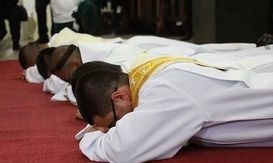
Is it time to re-think seminaries?
We need seminaries to be places that train new generations of clergy to be servant leaders who can pastor — not rule over — the faithful
Extract from Gideon Goosen, Australia, National Catholic Reporter. 25 September 2021
The Catholic Church in Australia has reached a critical point in its journey where a total re-generation of the church is required. The findings of the sexual abuse of children in the Church has been the main catalyst, documented in the Final Report of the Royal Commission into Institutional Responses to Child Sexual Abuse. The Final Report identified clericalism as a significant contributor to abuse across religious institutions Australia-wide. Clericalism is rooted in a theological belief that the clergy are different to the laity, having undergone an 'ontological change' at ordination (a change to the very nature of their being on receiving Holy Orders) and feeds the notion that the clergy may not be challenged. And according to the report, the culture of clericalism is on the rise in seminaries in Australia. According to the report, 'Clericalism is the idealisation of the priesthood, and by extension, the idealisation of the Catholic Church. Clericalism is linked to a sense of entitlement, superiority and exclusion, and abuse of power.' A person suffering from clericalism sees himself as special, superior to others and worthy of greater respect. This could lead to arrogance and the belittling of others. Lay people can also be guilty of clericalism if they support this attitude.....(more). Photo:Seminaries-is-it-time-to-re-think NCR 20210925
Extract from Terry Fewtrell, Pearle & Irritations, John Menadye website, 24 September 2021
Mark Coleridge will be a pivotal figure in the plenary “summit” on reforms in the Australian Catholic Church. But will the support of Pope Francis, many lay Catholics and possibly the Holy Spirit be enough to shift the Pell acolytes? Mark Coleridge, archbishop of Brisbane and president of the Australian Catholic Bishops’ Conference, is ultimately the captain of the Australian church’s vessel that is in seriously troubled waters. Following the scathing royal commission report he was the key advocate among his brother bishops urging they convene a Plenary Council. Coleridge describes the decision to go ahead with the council as “the work of the Holy Spirit”. That might well be accurate, given the known resistance to the idea of any review forum that went beyond the limits of current episcopal members. Coleridge has consistently “talked up” the Council as a one-off opportunity and a forum that should not produce “business as usual” outcomes. Refreshingly he starts with the fact that the Australian church faces serious issues and needs to confront its realities. Such views are clearly at odds with the attitudes of those senior clerics who have been strong acolytes of Cardinal George Pell, and who in most cases owe their positions to the influence of Pell with the Curia and Rome. Coleridge, on the other hand, owes his position as president of the bishops’ conference to the fact that he was seen as an acceptable alternative to the Pell push. But Coleridge is not directly in charge of the plenary planning group. That role belongs to the archbishop of Perth Timothy Costelloe, president of the Plenary Council. One wonders therefore just how comfortable Coleridge is with the published agenda and its lack of focus. Perhaps he views it as the best that could be hoped from a process heavily influenced by traditionalist churchmen, many of whom never wanted such a forum. While Coleridge has been relatively quiet in recent times in the Australian media, internationally his positioning has been quite different......(more)
Extract from CathNews, ACBC Media Blog, 23 September 2021
Plenary Council president Archbishop Timothy Costelloe SDB is inviting Catholics across Australia to pray with and pray for Council members during the upcoming first general assembly. The Fifth Plenary Council of Australia will open on Sunday, October 3, with Archbishop Costelloe celebrating the opening Mass at St Mary’s Cathedral in Perth at 2pm AEDT. The Mass will be livestreamed on the Plenary Council website. Masses during the week will also be broadcast publicly at 9.30am AEDT, with the Mass to close the first general assembly livestreamed from Brisbane at 11am AEDT on October 10. Australian Catholic Bishops Conference president Archbishop Mark Coleridge will celebrate that Mass. Archbishop Costelloe said the Masses being celebrated online allow people across the country to join in common prayer and worship with the Plenary Council as its focus. “With millions of people living in locations where public Masses can’t be celebrated, this online option will help Council members and the wider faithful unite in liturgy,” he said. “Where people can gather for Mass, the same prayers, readings and musical suggestions used for the Plenary Council Masses can be downloaded for use in each parish across the country.” The prayers provided to members for their nourishment, including a range of prayer experiences such as lectio divina and the Examen, are also available for download and use. In addition to the Masses, opening prayer for each day of the first general assembly will be livestreamed, offering another time of shared encounter for those wishing to join online....(More).
Australian cardinal maintains he's not a climate change denier, but skeptical of solutions
Extract from Christopher White, National Catholic Reporter, 23 September 2021
Rome — Australian Cardinal George Pell said Sept. 23 he "never really approved" of Pope Benedict XVI's shocking decision in 2013 to resign the papacy. Pell, who was the prefect of the Vatican's Secretariat for the Economy from 2014 to 2019 and a member of Pope Francis' advisory Council of Cardinals from 2013 to 2018, said that among the recent popes — John Paul II, Benedict XVI and Francis — he was closest to Benedict. Pell described John Paul II as "one of the greatest popes in history, of course," and praised Benedict's "prodigious intellect," adding that "I knew him better than all of the other two popes." The cardinal's remarks came during a webinar as part of the Pontifical University of the Holy Cross' "The Church Up Close" virtual series targeted to journalists around the world to help them better understand the dynamics of the Vatican. Pell was archbishop of Melbourne, Australia, from 1996 to 2001 and then led the Sydney Archdiocese from 2001 until Francis tapped him to oversee the Vatican's financial reforms in 2014. Despite working closely with Francis for five years, Pell has often been perceived as at odds with key initiatives of this papacy, including the pope's more welcoming approach to divorced and remarried couples and LGBTQ Catholics, and his prioritization of fighting climate change. During the interview, Pell said that Francis has the "great gift of empathy and sympathy." When asked to respond on why some conservative Catholics are hostile to Francis, the cardinal said he believes some "wonder just what is being taught" at the moment, although he did not elaborate on specific issues. "Pope Francis has a great gift, like Jesus did, of reaching out to those on the peripheries and sinners," Pell said, "and that can and has confused people."....(more)

Extract from CathNews, 23 September 2021
“Synodality and co-responsibility” is the theme for Catholic Religious Australia’s second online conversation exploring The Light from the Southern Cross report on Church governance. To be held on November 1, the event aims to provide an opportunity for reflection and engagement with the report at a significant time in Church history and in light of the Plenary Council. Australian Catholic University associate professor Fr Orm Rush, moderator for the Maitland-Newcastle Diocese’s synod working party Teresa Brierley and Plenary Council vice-president Bishop Shane Mackinlay will participate in the conversation. “My hope is that the Plenary Council will show prophetic courage, not only in its reform of the Church’s inner life, but also in the way it addresses the urgent issues facing Australia and the world,” Fr Rush. The speaker presentations will be followed by a series of interactive group discussions and speaker responses, which will open the way for questions and for group and individual reflection. The first conversation in the series was held in July, with about 150 people from across Australia logging on for the conversation on “ Mission and Church”. CRA national executive director Anne Walker said the conversation series “seeks to be personally formative – a catalyst for change and renewal that leads us towards a transformed Church, changed and revitalised through our hearts, words and actions”.)....(more). Photo: Teresa Brierley, Fr Orm Rush and Bishop Shane Mackinlay (Supplied), CathNews
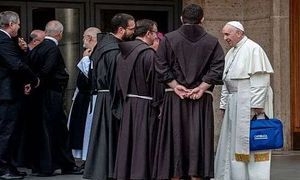
Pope sees no alternative to synodality as the way forward for the Church. In the run-up to the preparation phase for the next Synod assembly, Pope Francis shares his vision of synodality in a long address to Catholics of the Diocese of Rome
Limited extract from Céline Hoyeau | Vatican City, Subscription journal La Croix International, 21 September 2021
.........Francis noted that synodality comes from the Greek word synodos, which means "to journey together". One the one hand, this means it involves everyone. "Everyone is a protagonist," the pope repeated, insisting several times that "no one can be considered a mere extra". On the other hand, he said this "common journey" implies that "immobility cannot be a good condition for the Church". He said the Holy Spirit "is the director of this story" and our "movement is the result of docility" to the Spirit. The pope pointed to the story of Peter and Paul, as recounted in Acts. The two apostles embody different visions of the Church, he noted, but Acts shows that they were both moved by "an impulse that put them in crisis". In other words, it forced them to "dare to question, to change their minds, to make mistakes and learn from them, and above all to hope in spite of difficulties". This is better than being stuck in the past, the pope said, because "if the water does not flow and is stagnant, it is the first to putrefy". "A polluted Church begins to rot," Francis warned. "It may be necessary to leave, to change direction, and to overcome beliefs that hold us back and prevent us from moving and walking together," he said. What must prevail is what is illustrated by the story of Peter meeting the centurion Cornelius, a "pagan". "Christianity must always be human, humanizing, reconciling differences and distances, transforming them into familiarity and closeness," the pope said. Synodality is opposed to clericalism. "One of the evils of the Church, even a perversion, is this clericalism that detaches the priest and the bishop from the people," Francis said. He lamented that there is still "much resistance to overcoming the image of a Church rigidly distinguished between leaders and subordinates, between those who teach and those who must learn......"No. We are the Church, all together," the pope reiterated.......(source) Photo: Pope Francis 2018 M MIGLIORATO CPP CIRIC CATHOLIC PRESS PHOTO La Croix 20210921
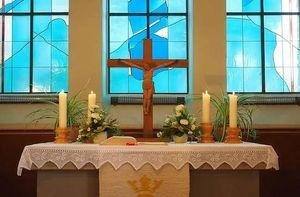
Further work is needed to truly implement the deep liturgical renewal mandated by the Second Vatican Council
Limited extract from Thomaas O'Loughlin, UK, Subscription journal La Croix International. 20 September 2021
The great Jesuit philosopher and theologian Bernard Lonergan once described those nostalgic for the pre-1970 liturgy as a group "that is determined to live in a world that no longer exists". The phrase came back to me recently when I read of another Jesuit, Pope Francis, who spoke about finding "new languages for handing on the gospel". But this is not an easy task. The pope – and the fact that it is clear to anyone who looks around at the age-profile on any gathering in the developed world – is clear that we need new language. Each generation, in a rapidly changing world, is like a new continent. We have to learn the new language – and such learning is always difficult. I often tell young theological students that learning the language of a new generation is harder than learning all the parts of the Greek verb, but they think I am exaggerating. Sadly, many like to imagine that they do not need to learn a new language but simply need to shout out louder in the old language. It is an easy mistake: more noise equals more communication.....(more): Image: The table of the Lord, La Croix, 20210920
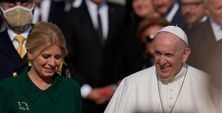
Extract from Inés San Martín, Rome Bureau Chief, Crux, 13 September 2021
.......To the Catholic hierarchy: The center of the Church is not the Church. “Living within the world means being willing to share and to understand people’s problems, hopes and expectations,” he said during a meeting with the bishops, priests and religious men and women in Bratislava’s Cathedral of St. Martin. “This will help us to escape from our self-absorption, for the center of the Church is not the Church!” He urged those present to leave behind the “undue concern for ourselves, for our structures, for what society thinks about us,” and instead become immersed in the lives of peoples and try to address their spiritual needs and expectations. Answering his own question as to what people expected, he said freedom, creativity and dialogue. Freedom, Francis said, is the key to humanity, as human beings were created free, and as Slovakia learned during the years of Communist rule, whenever freedom is attacked, violated or suppressed, humanity is disfigured and violence, coercion and the elimination of rights follows. The Church too can fall into this temptation, believing it’s “better to have everything readily defined, laws to be obeyed, security and uniformity, rather than to be responsible Christians and adults who think, consult their conscience and allow themselves to be challenged.” “A Church that has no room for the adventure of freedom, even in the spiritual life, risks becoming rigid and self-enclosed,” he said. “Some people may be used to this. But many others – especially the younger generations – are not attracted by a faith that leaves them no interior freedom, by a Church in which all are supposed to think alike and blindly obey.” Speaking about creativity, Francis argued that faced with the loss of the sense of God and of the joy of faith, it is useless to complain and “hide behind a defensive Catholicism, to judge and blame the world. We need the creativity of the Gospel.” Lastly, speaking about dialogue, he said that a Church that forms the faithful in interior freedom and responsibility is able to be creative by tapping into their history and culture, capable of engaging in dialogue with the world: “Those who confess Christ without being ‘ours,’ with those who are struggling with religion, and even with those who are not believers.”.......(More). Photo: Pope Francis Slovakia Petr David Josek AP, Crux 20210913